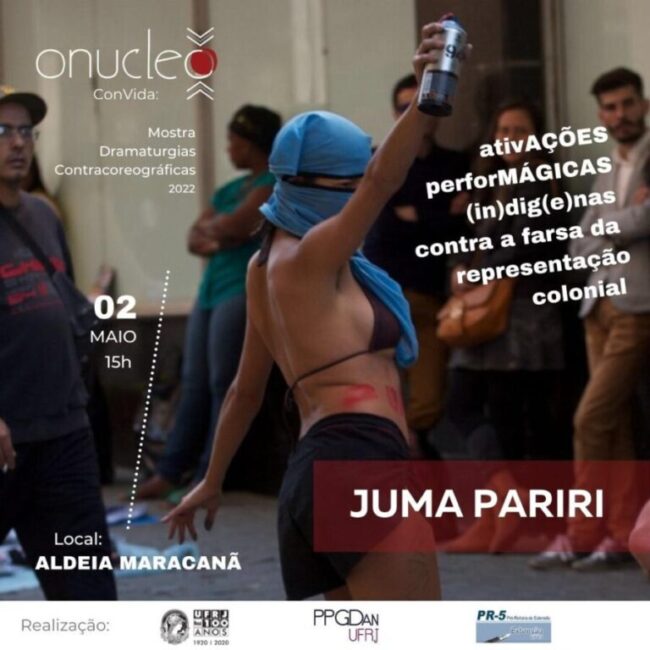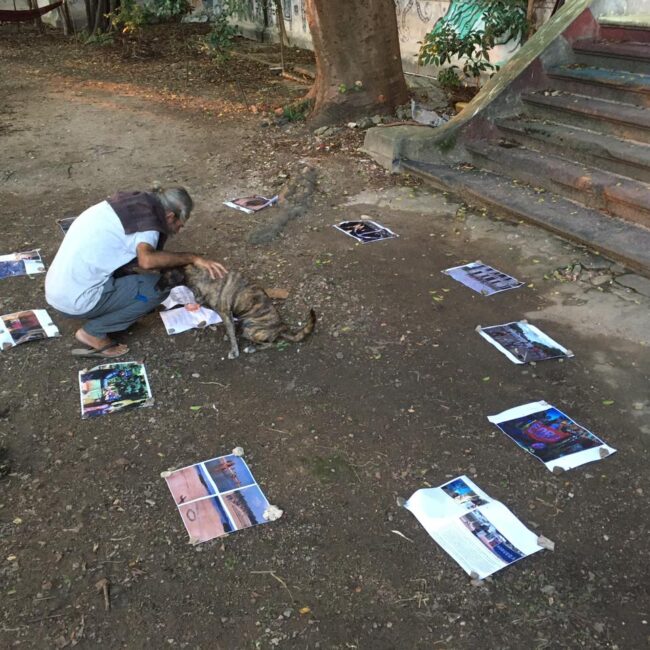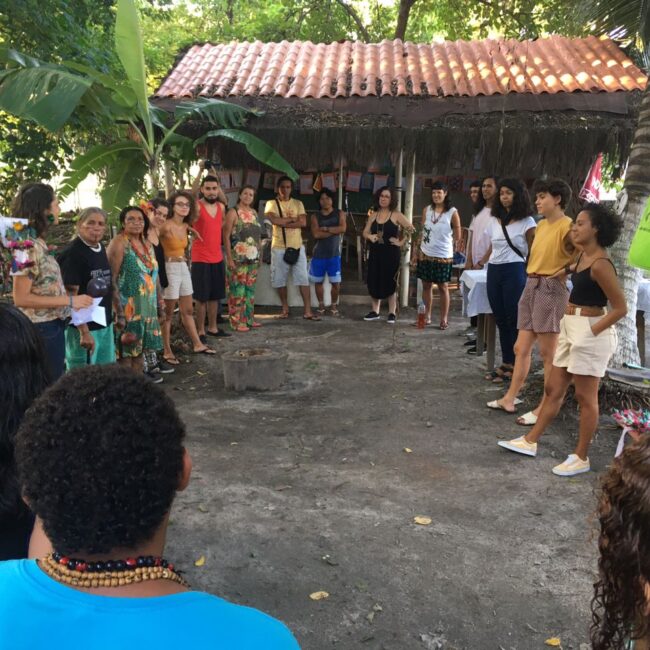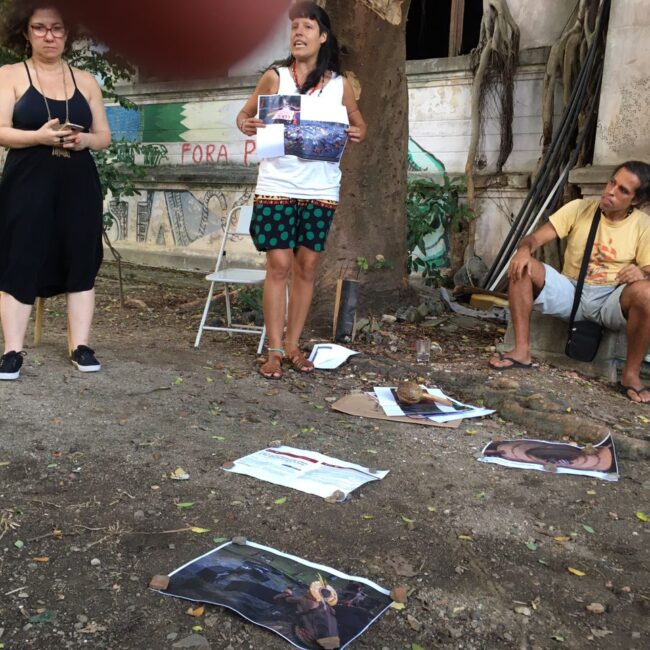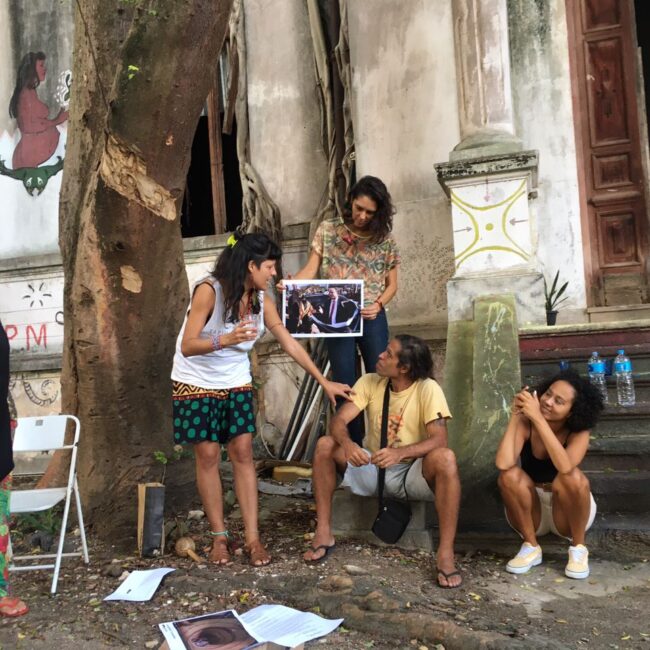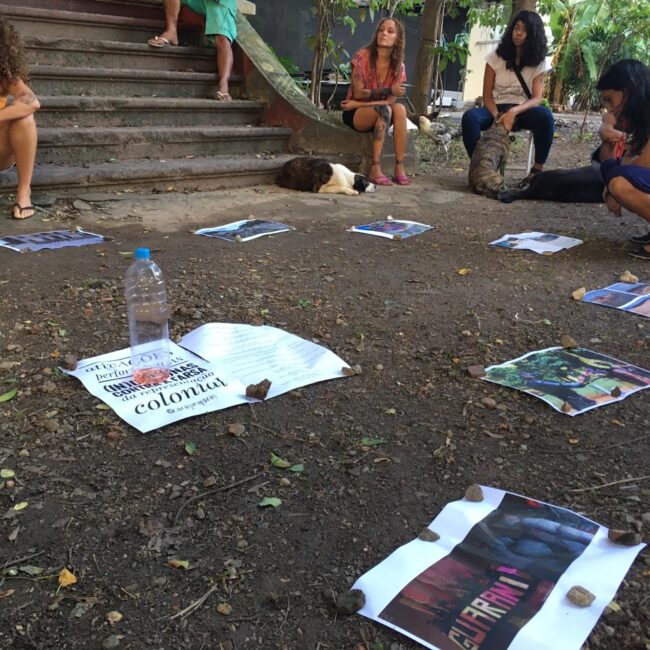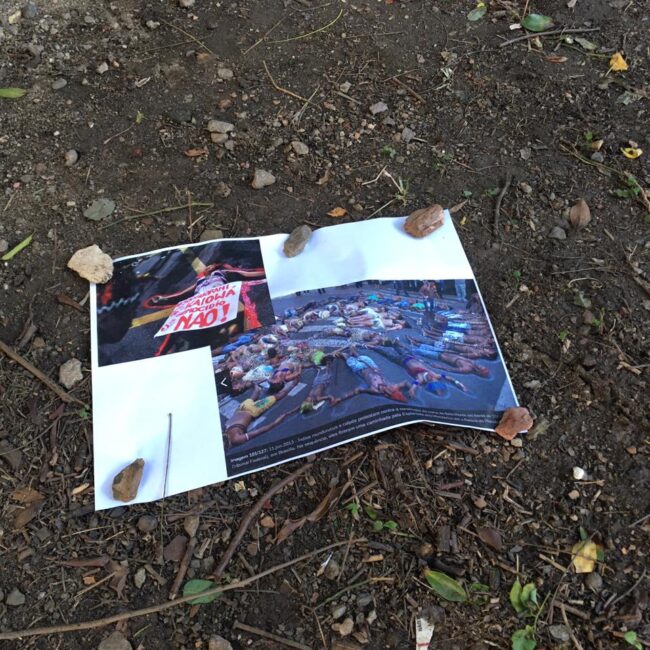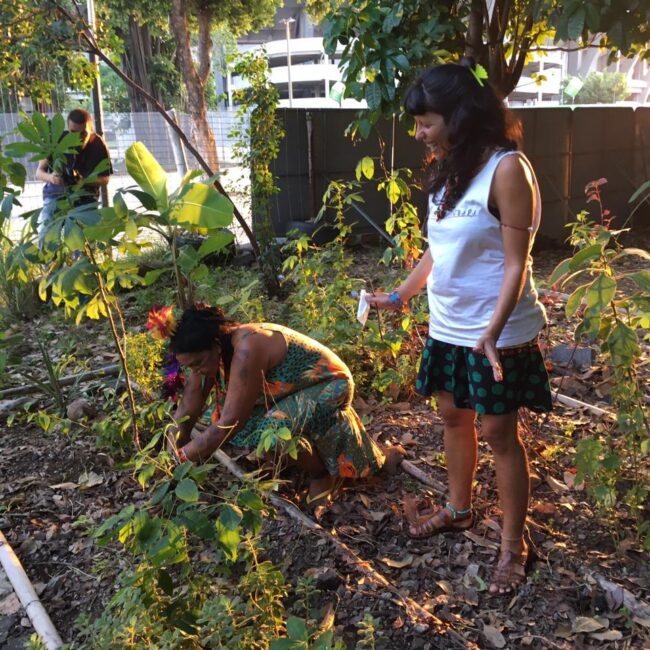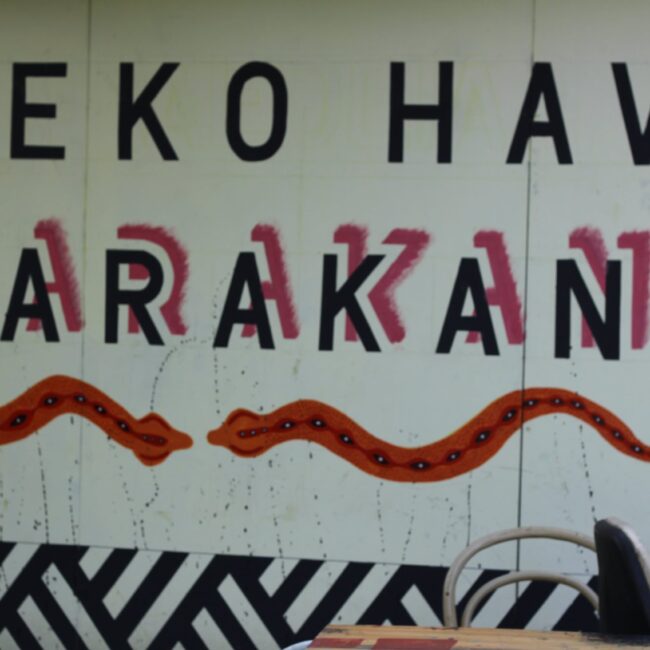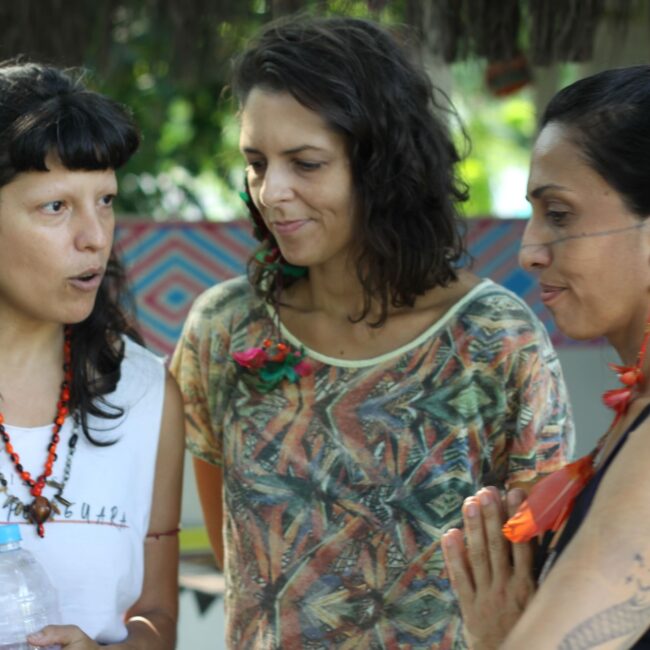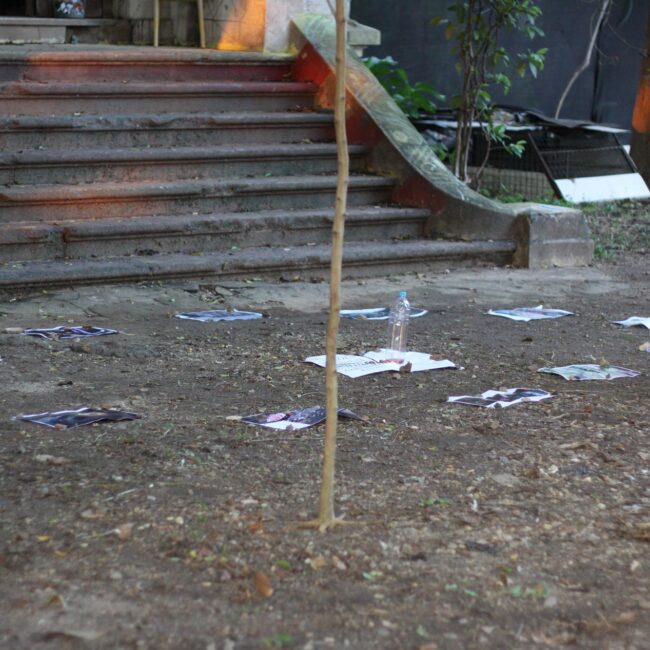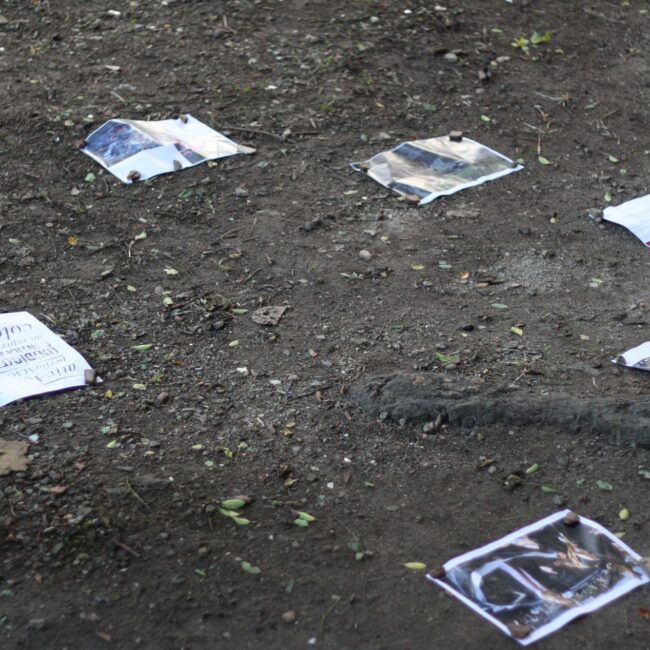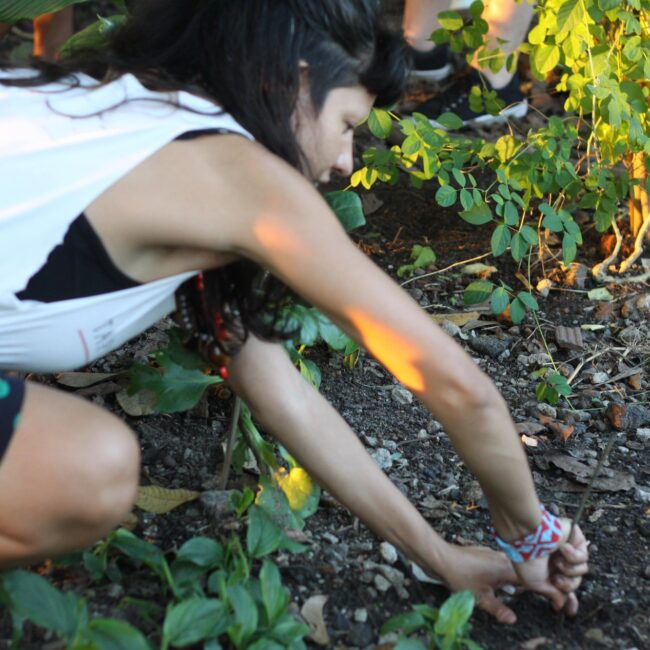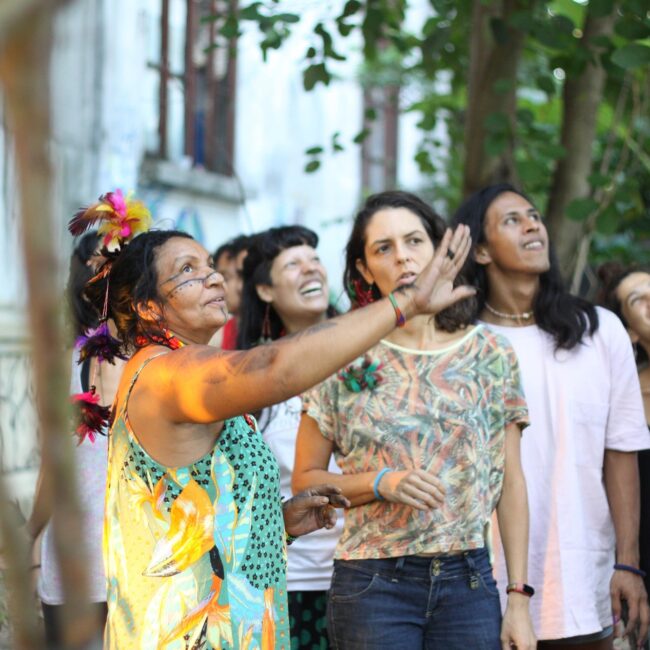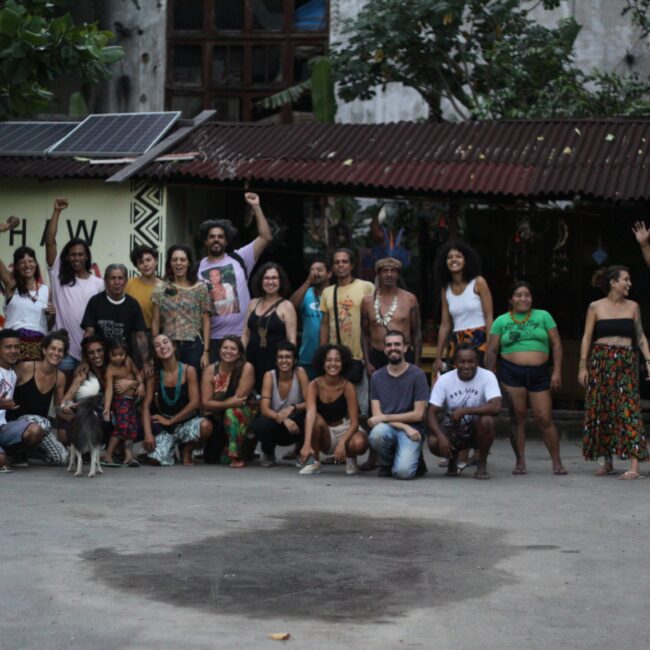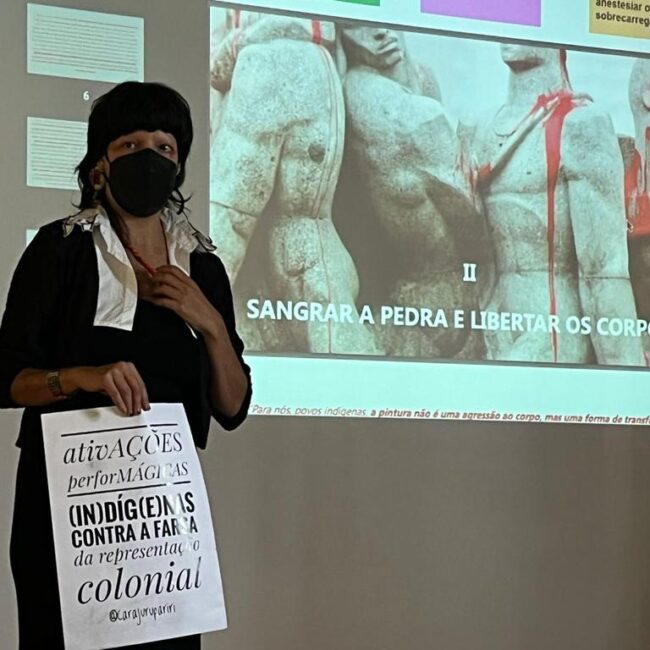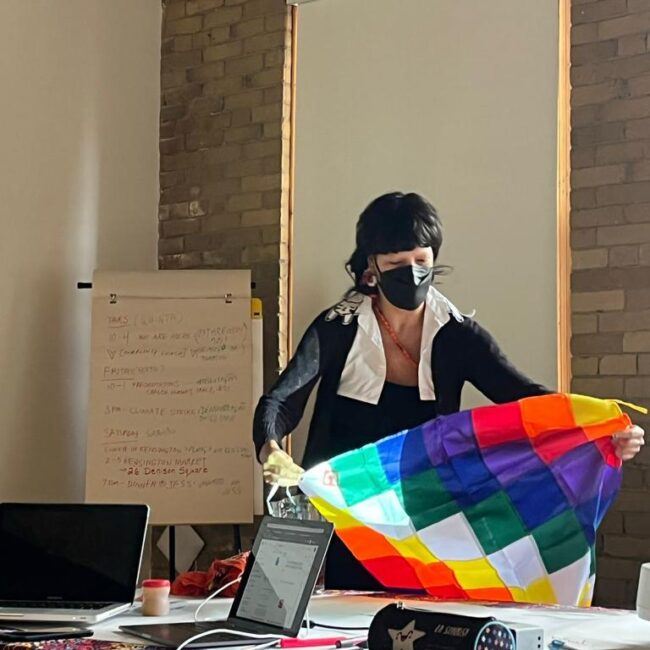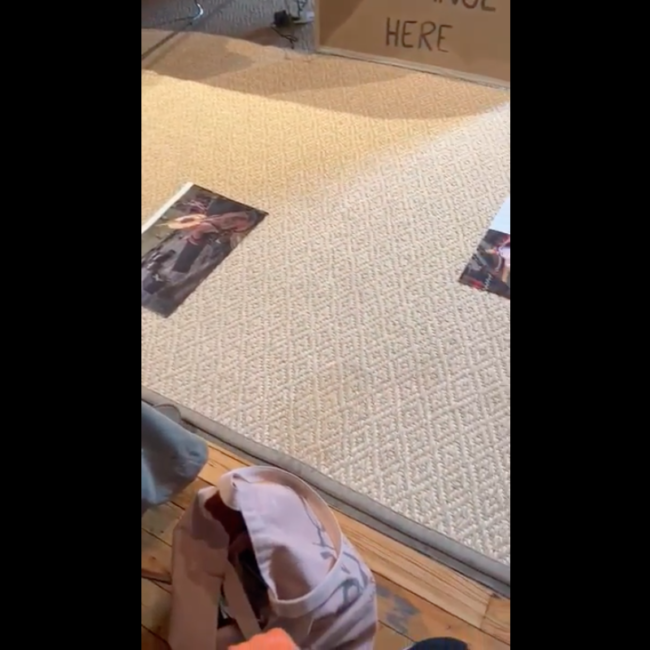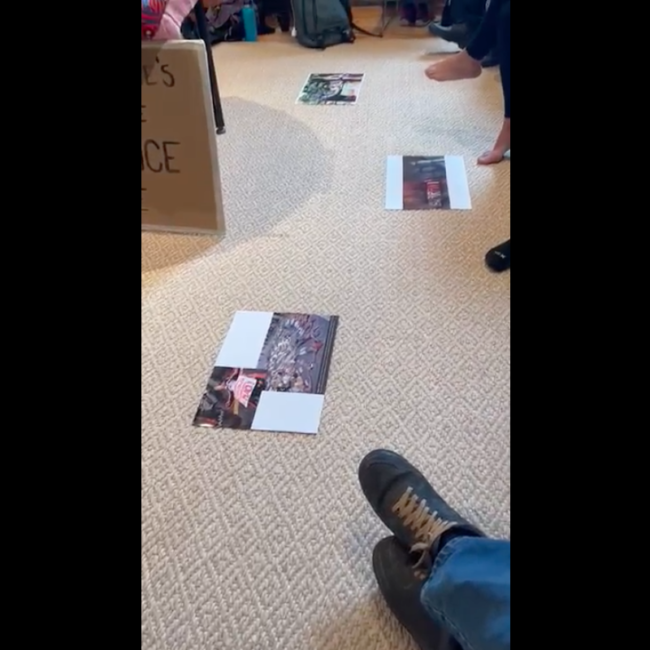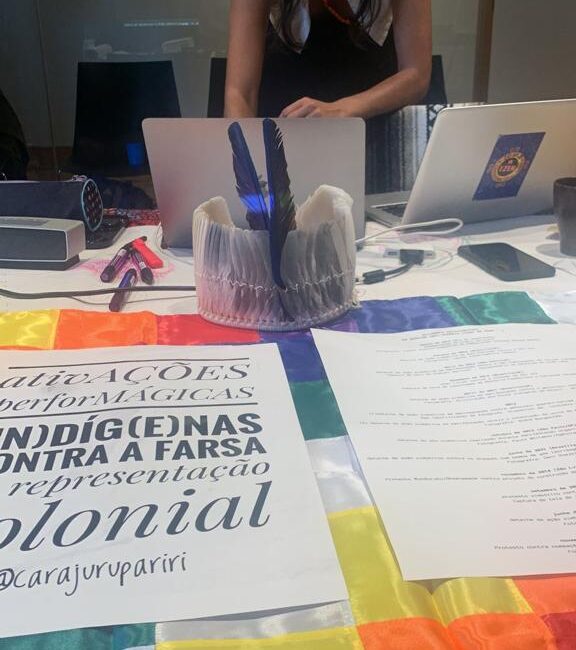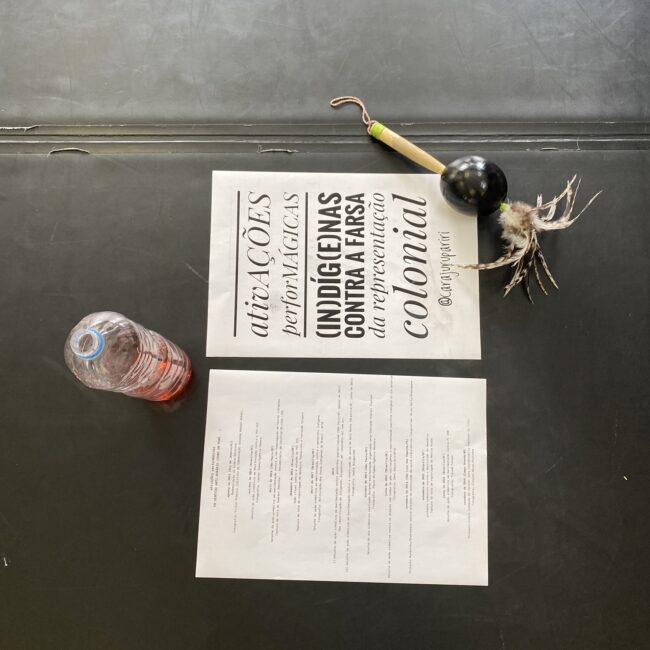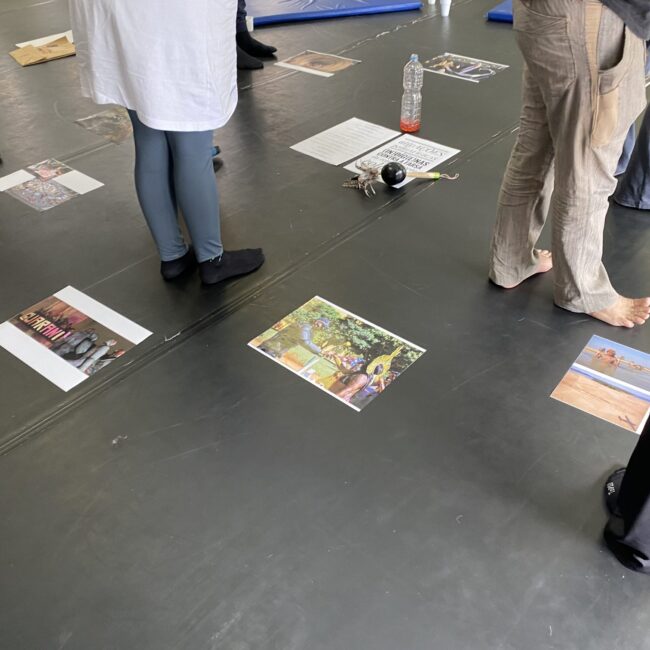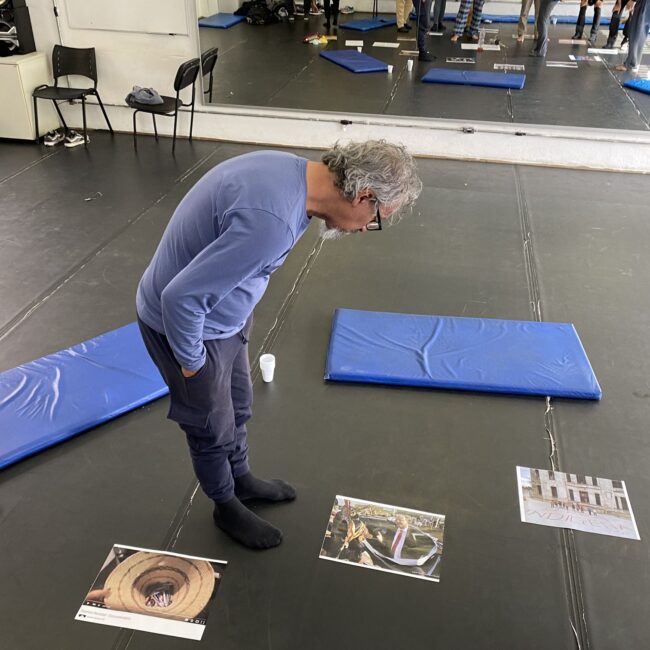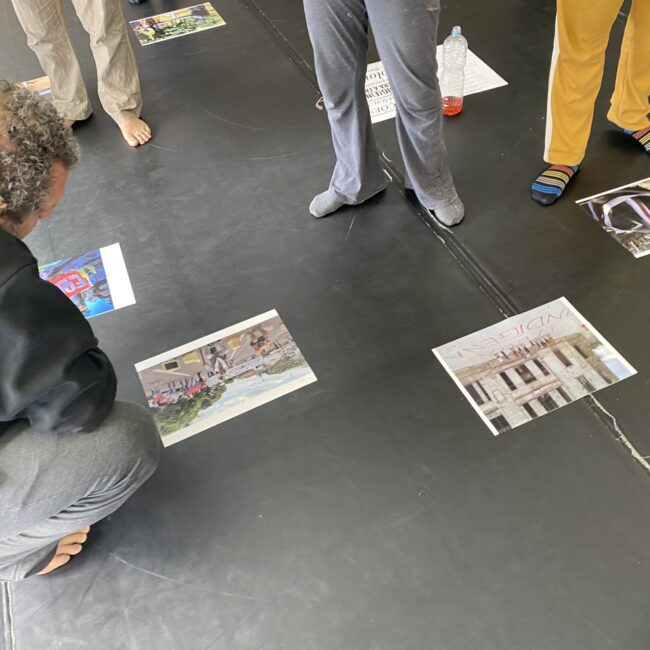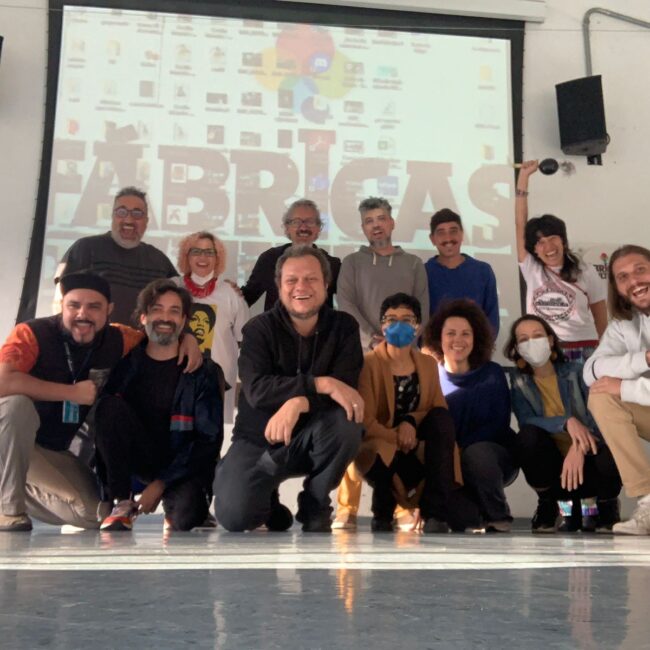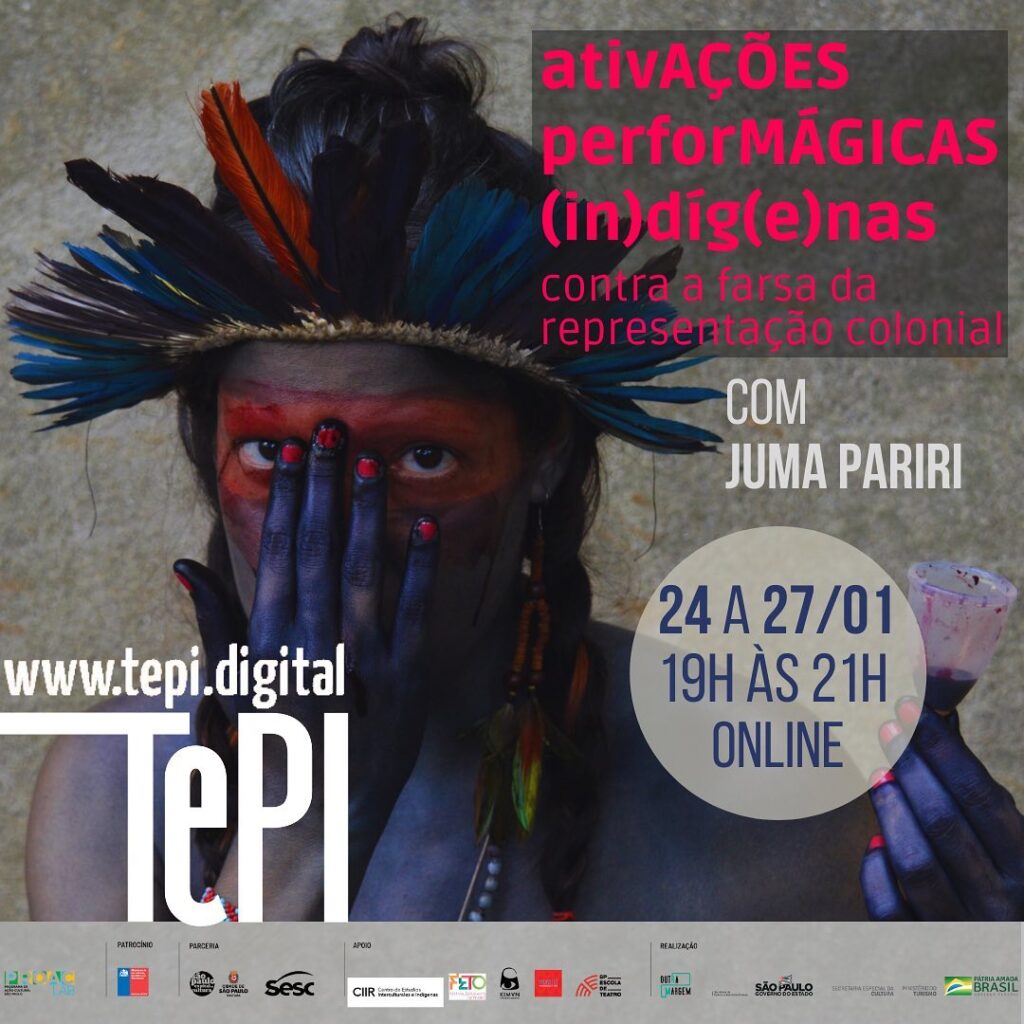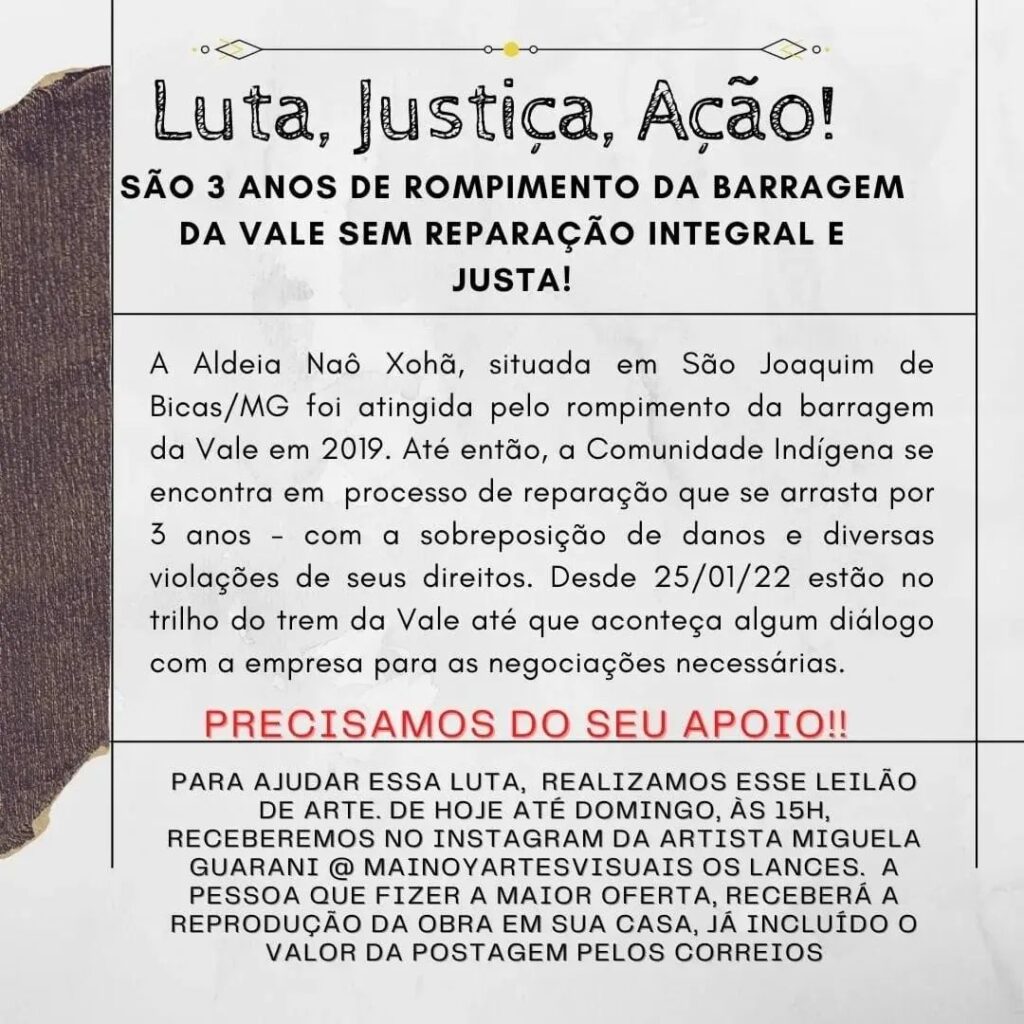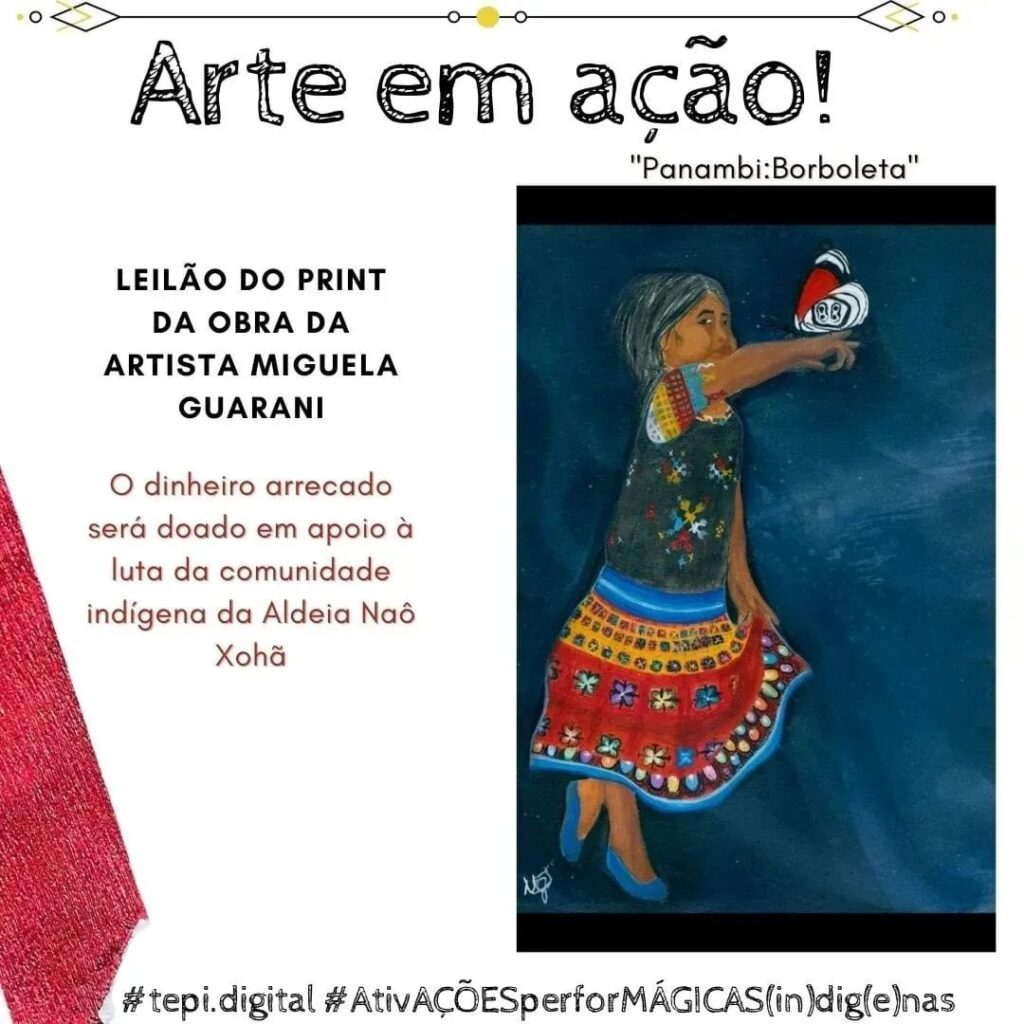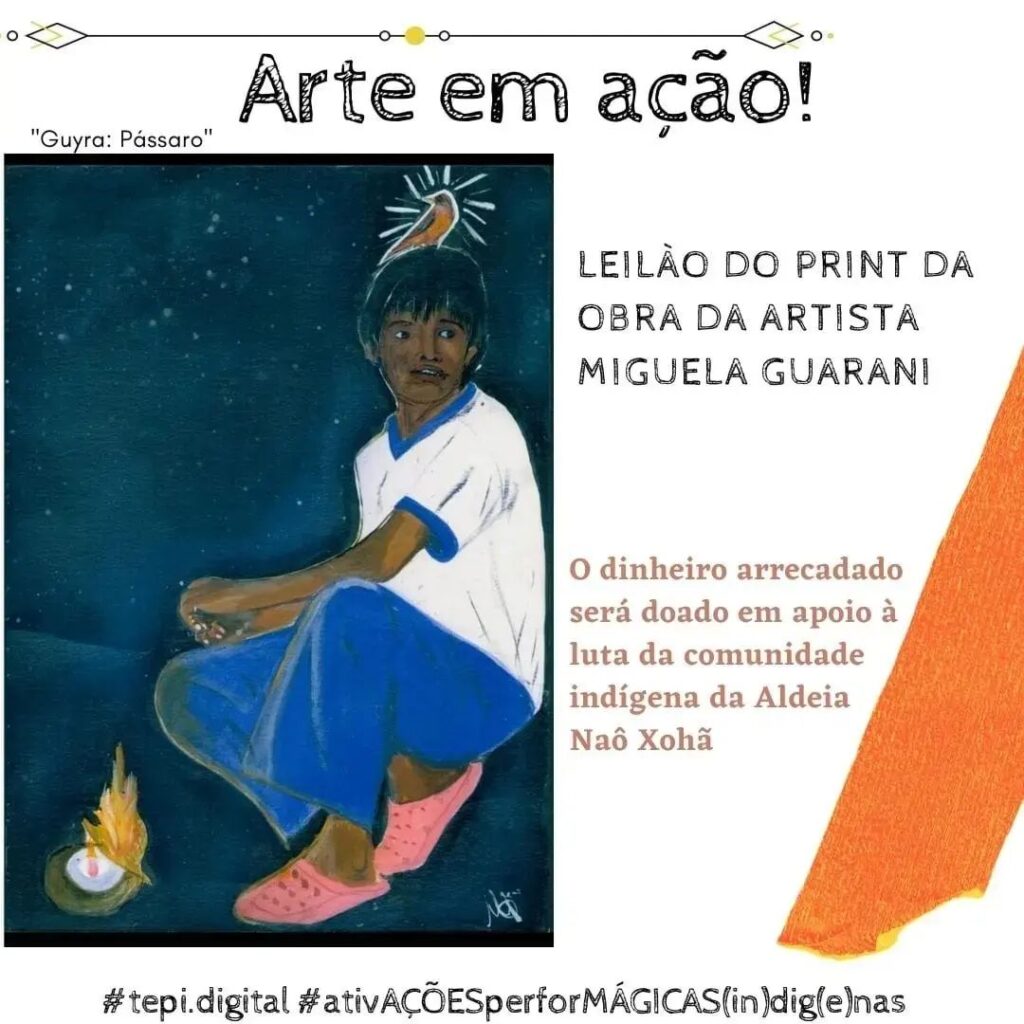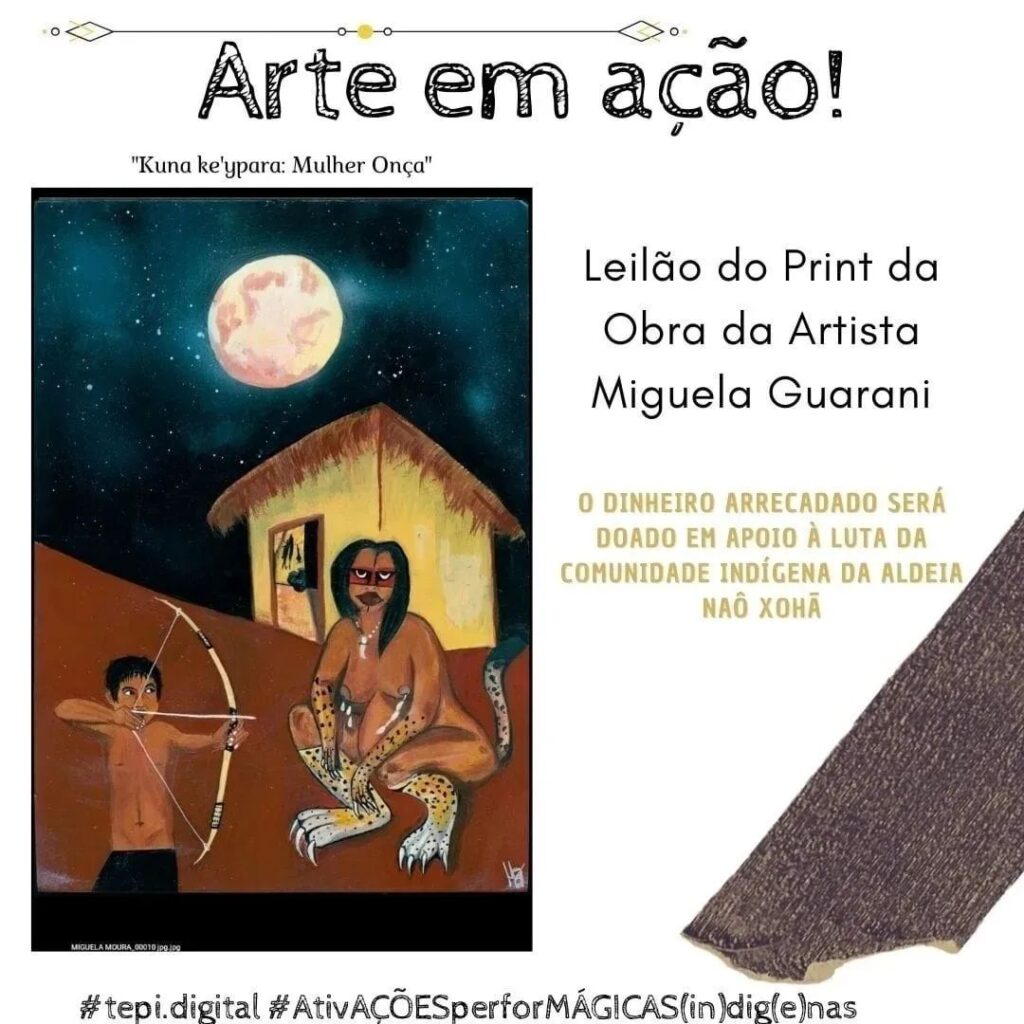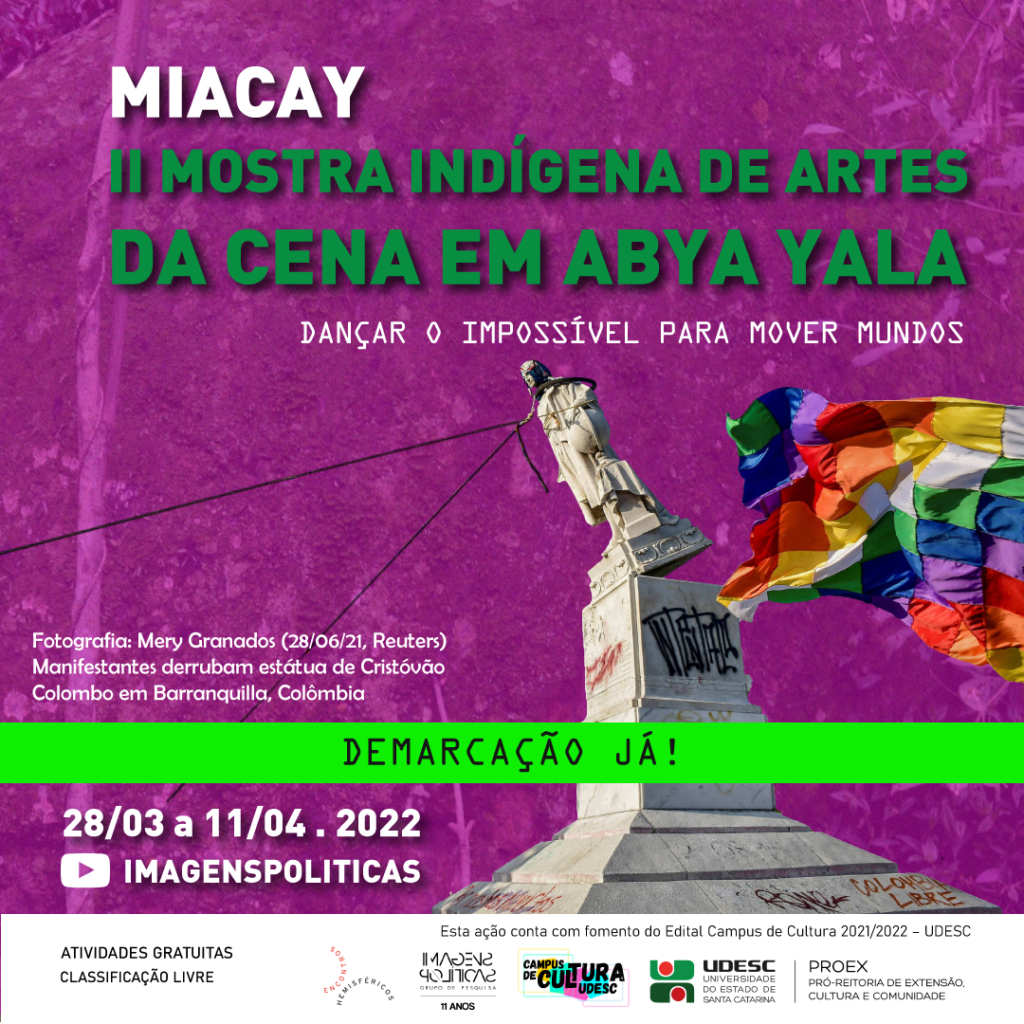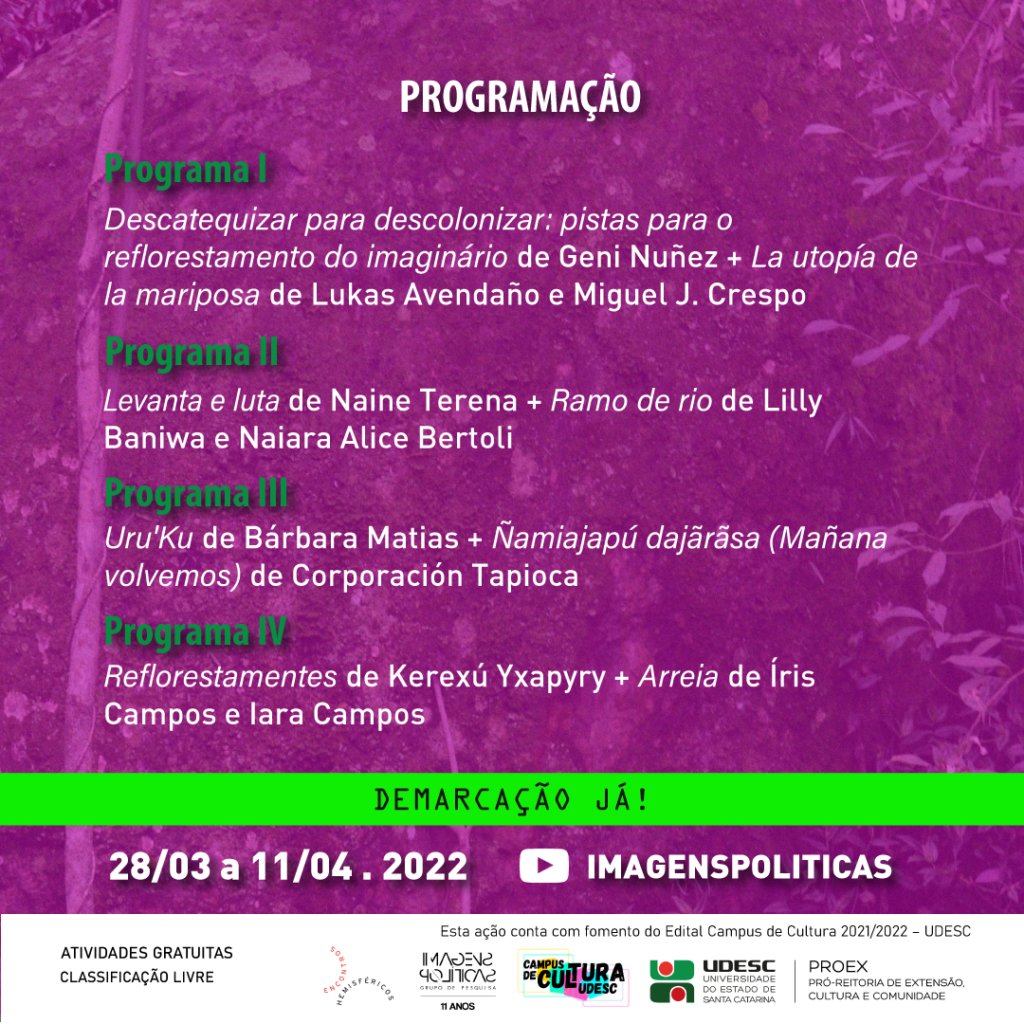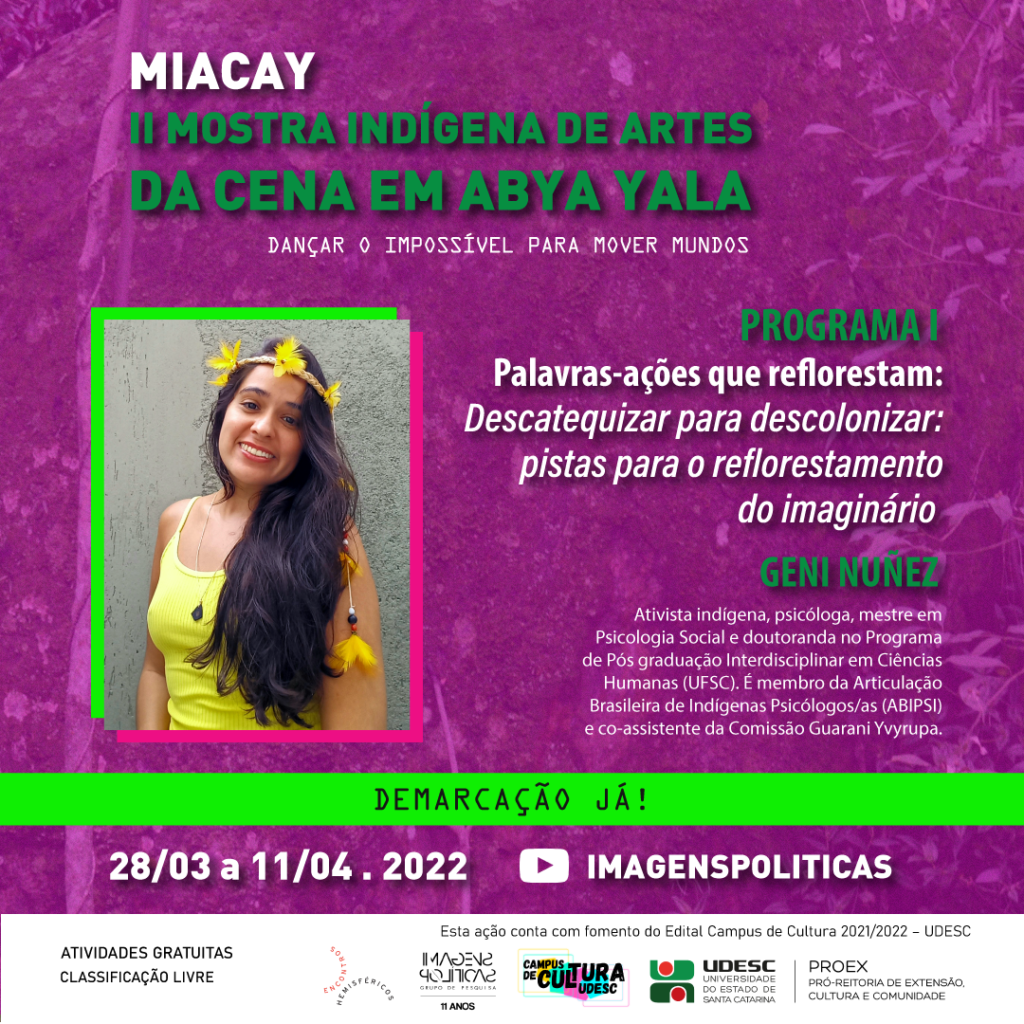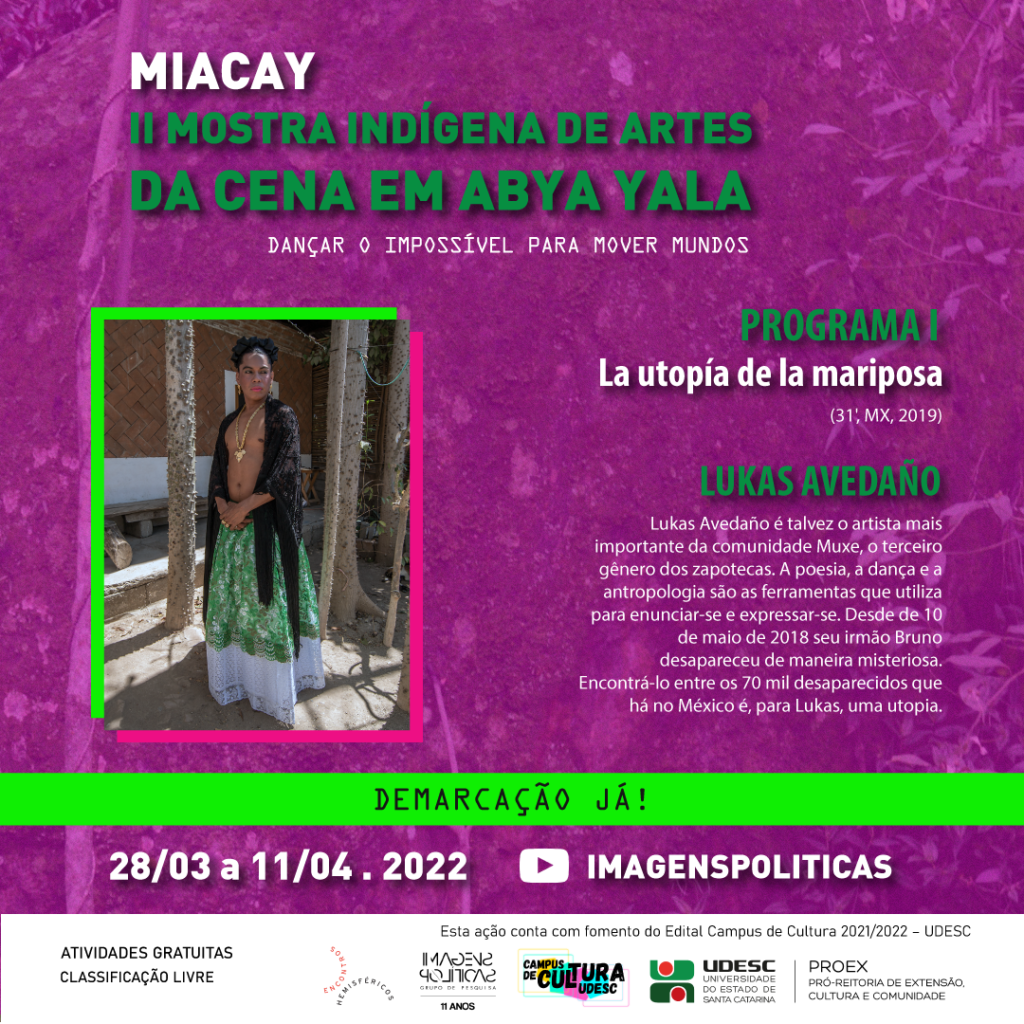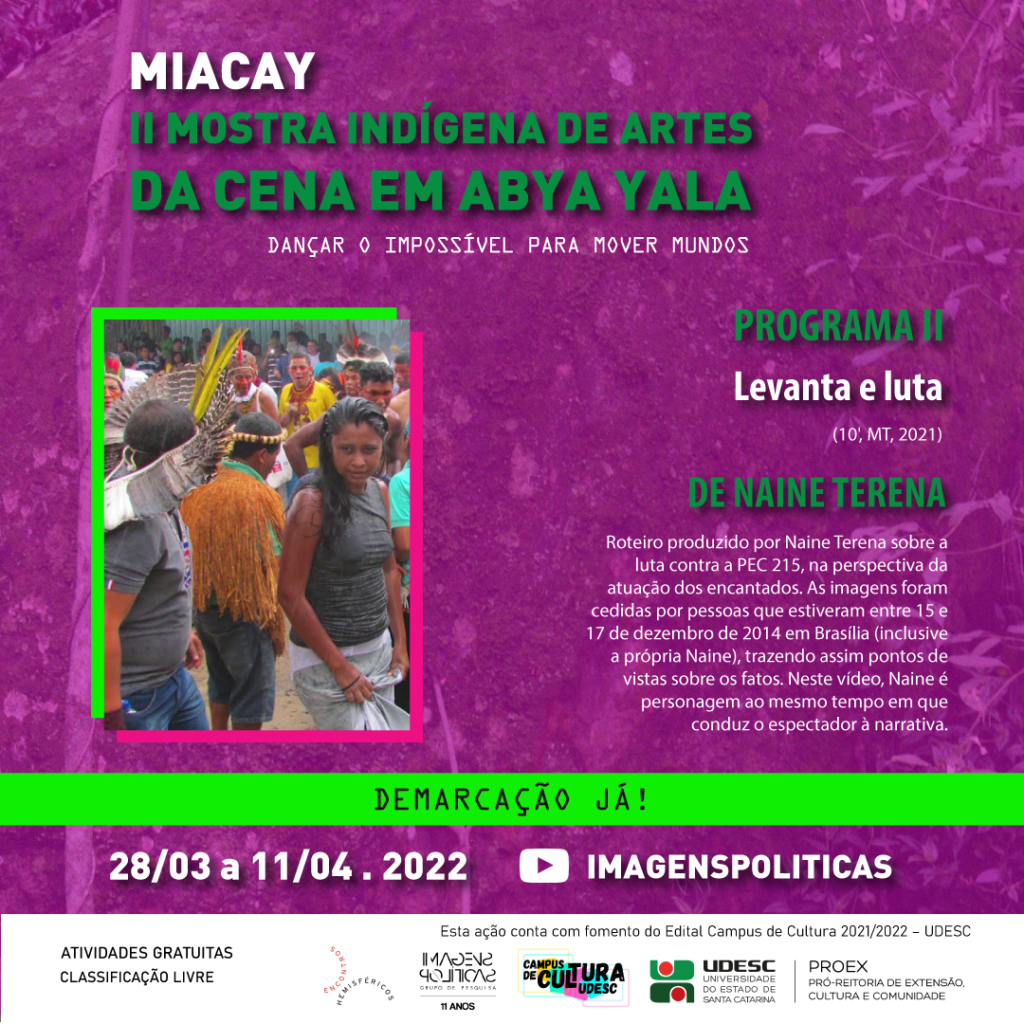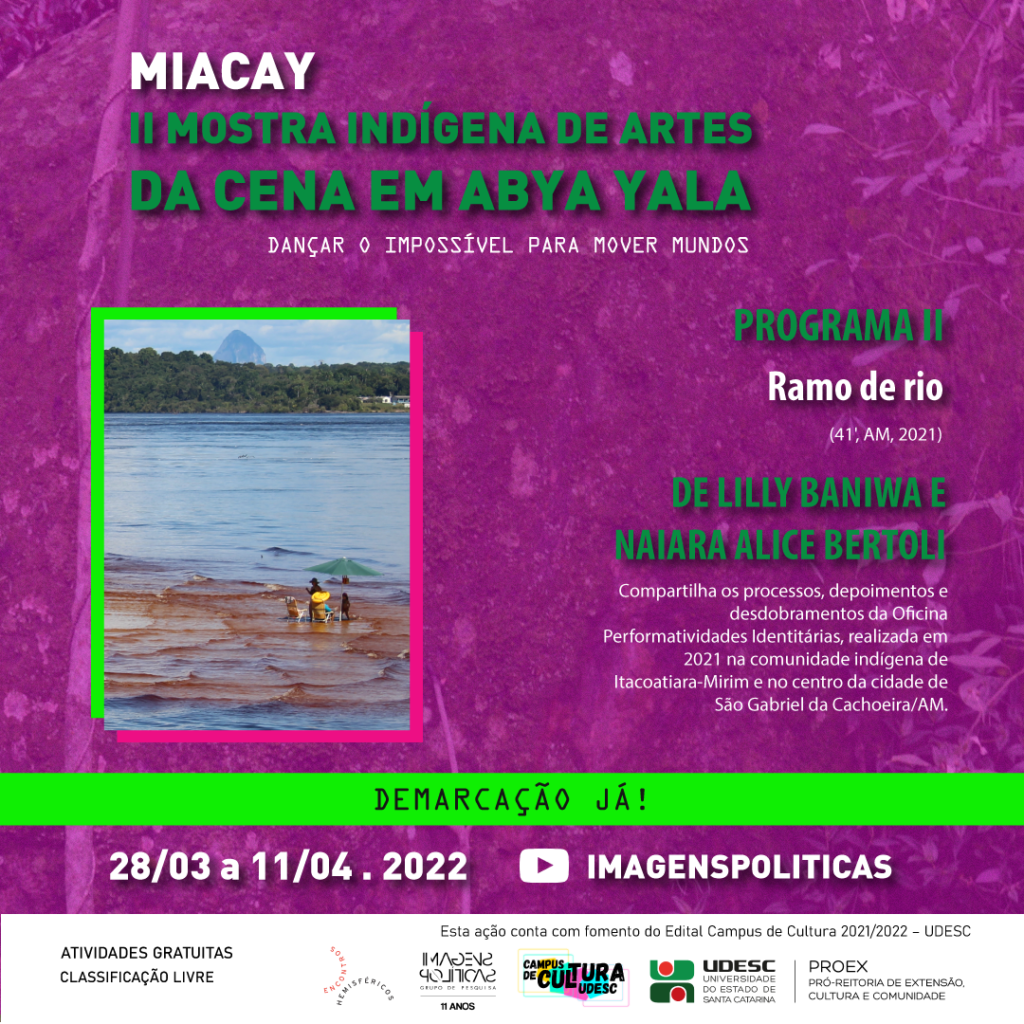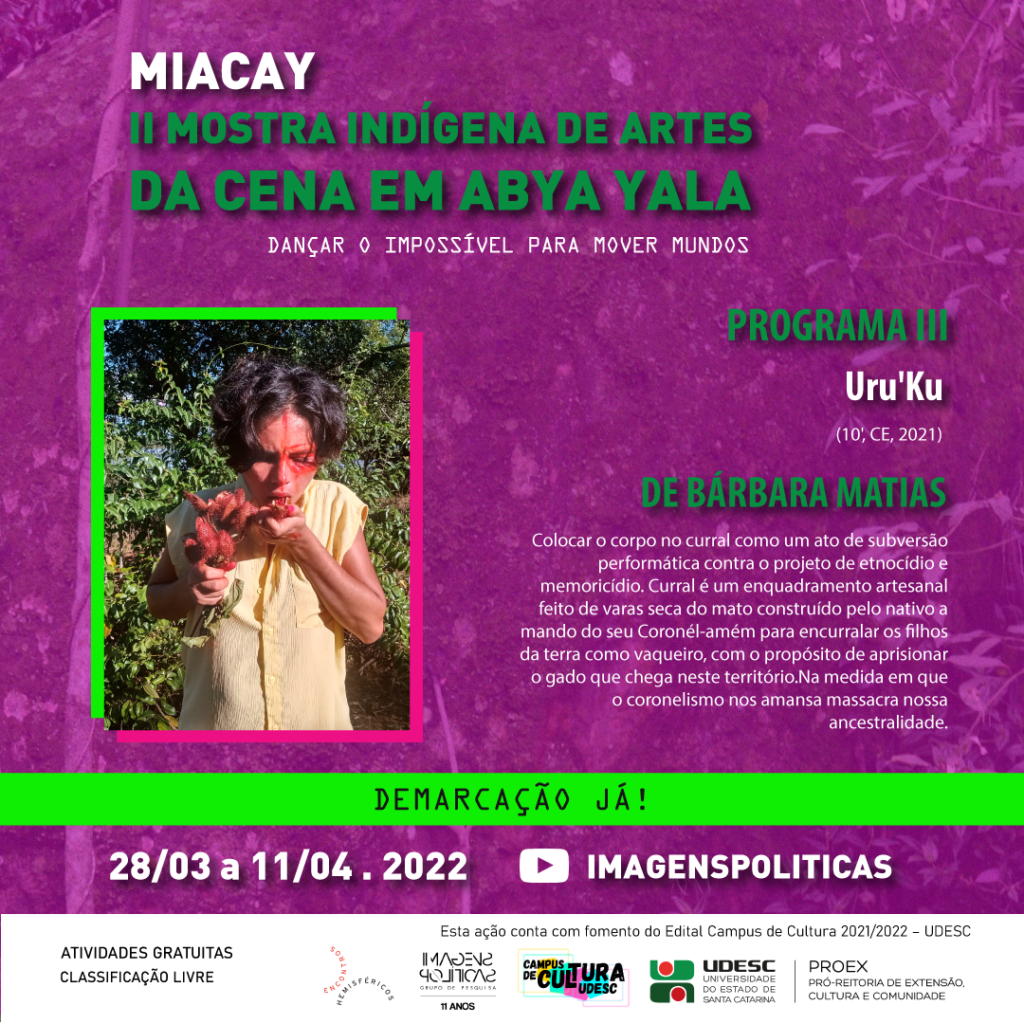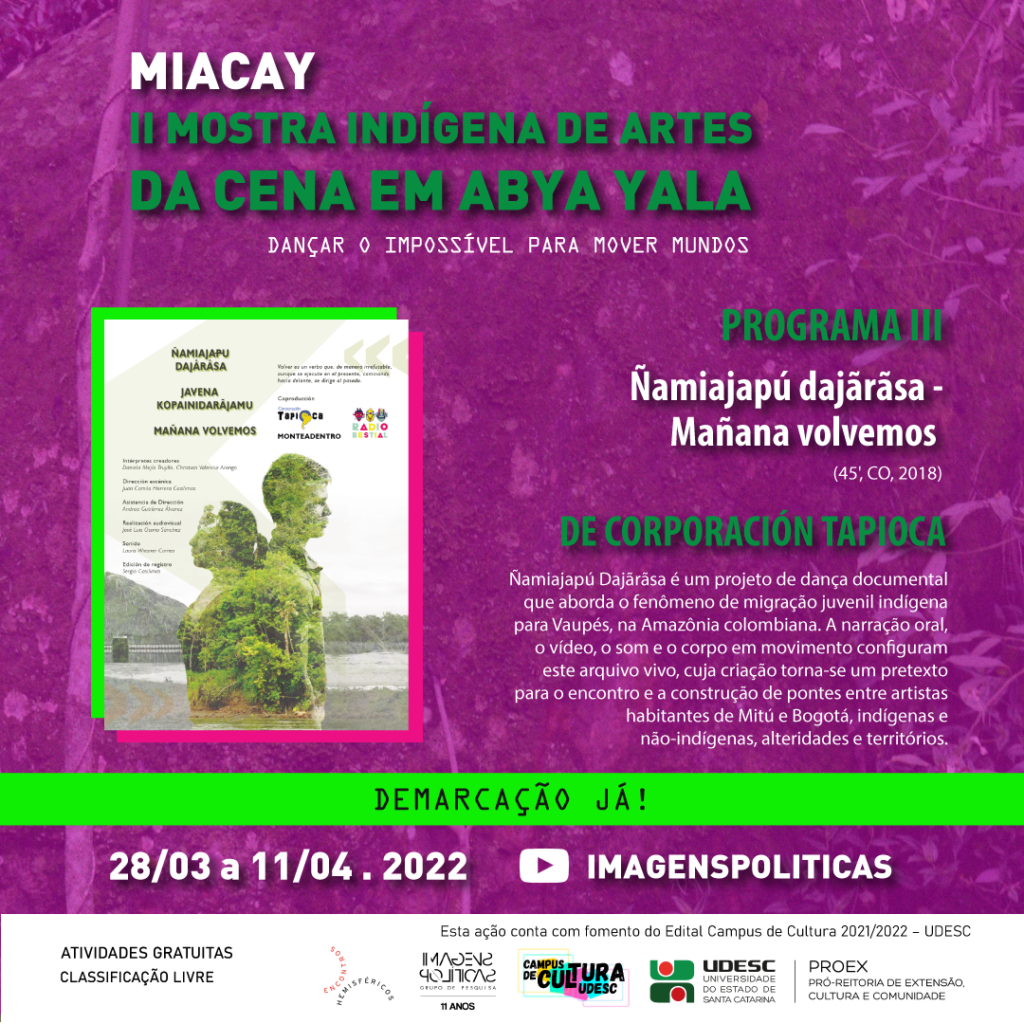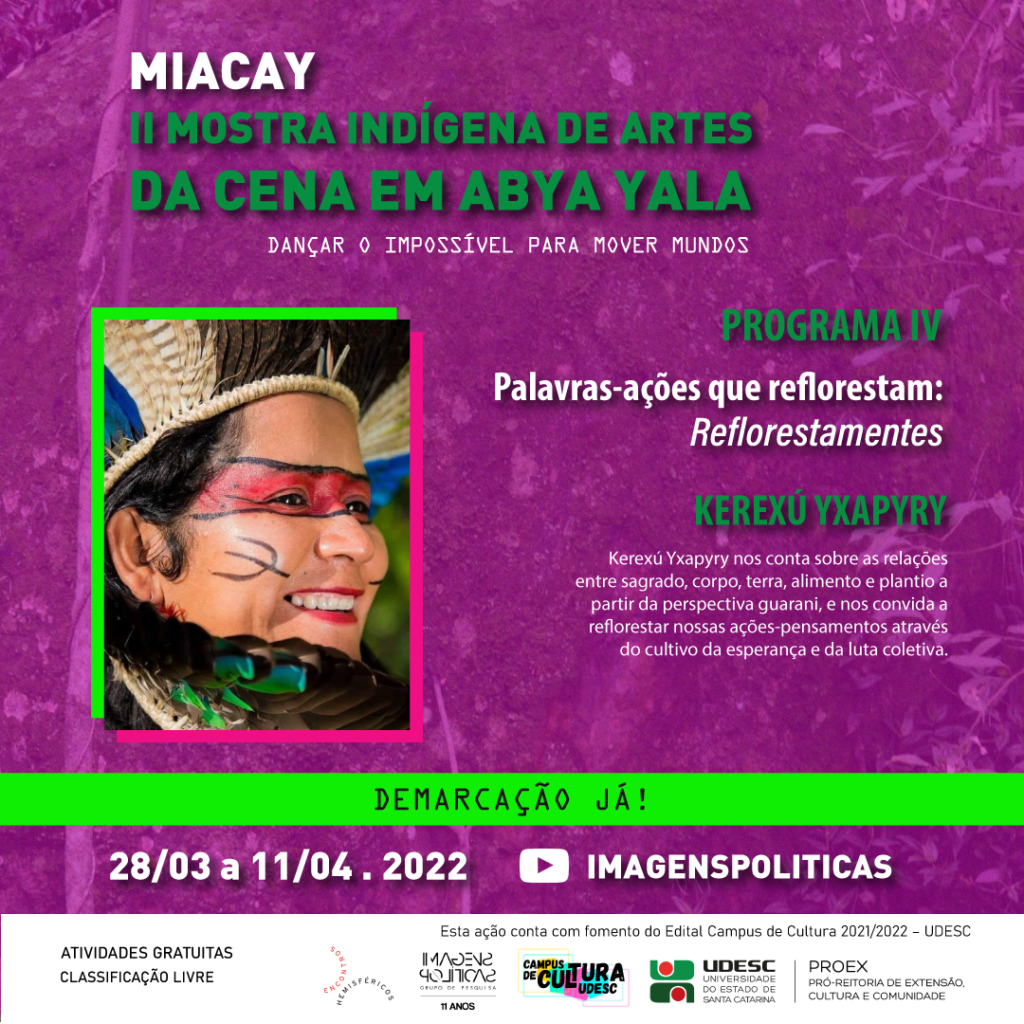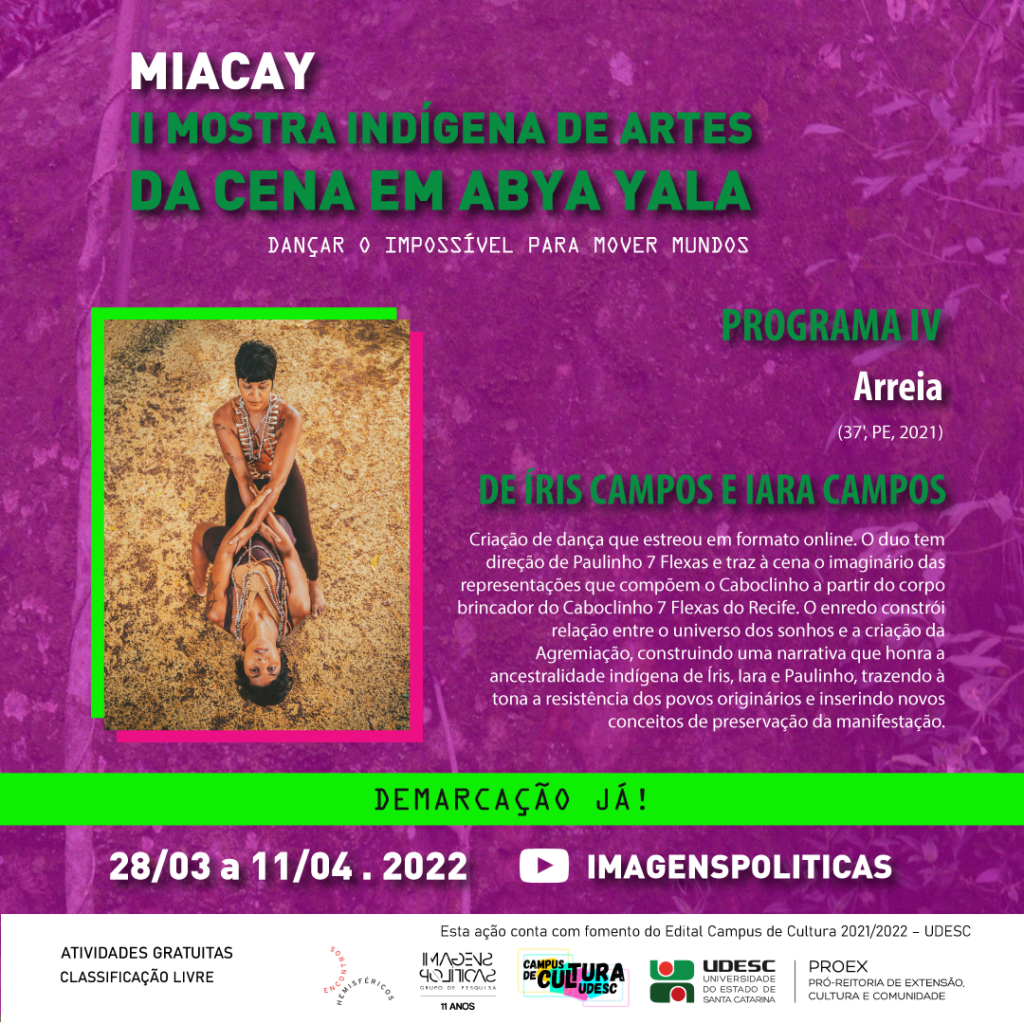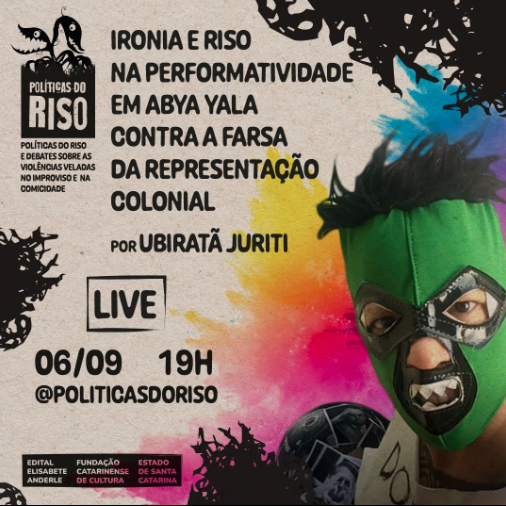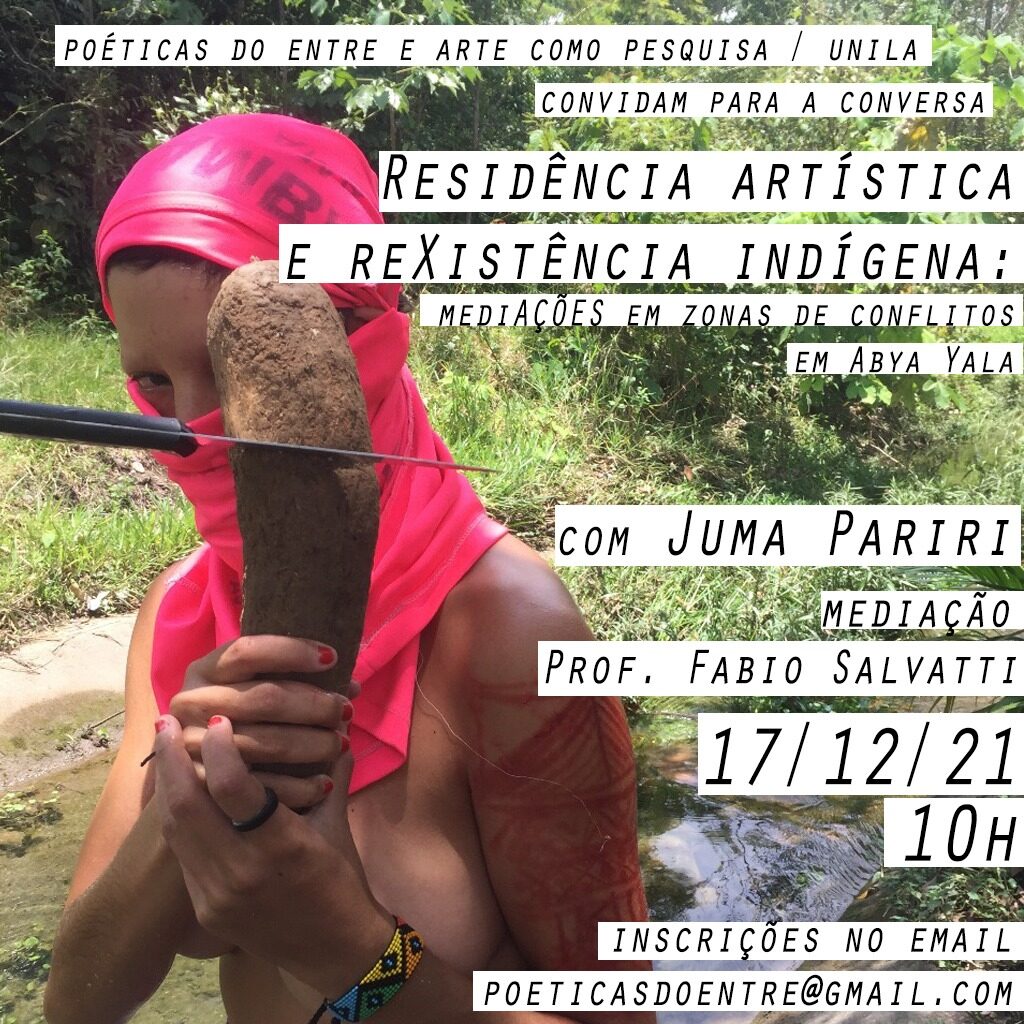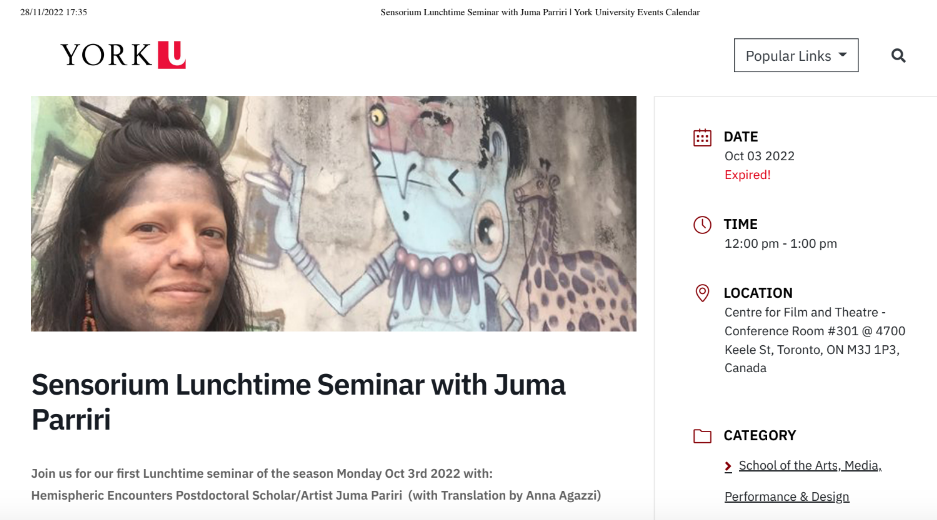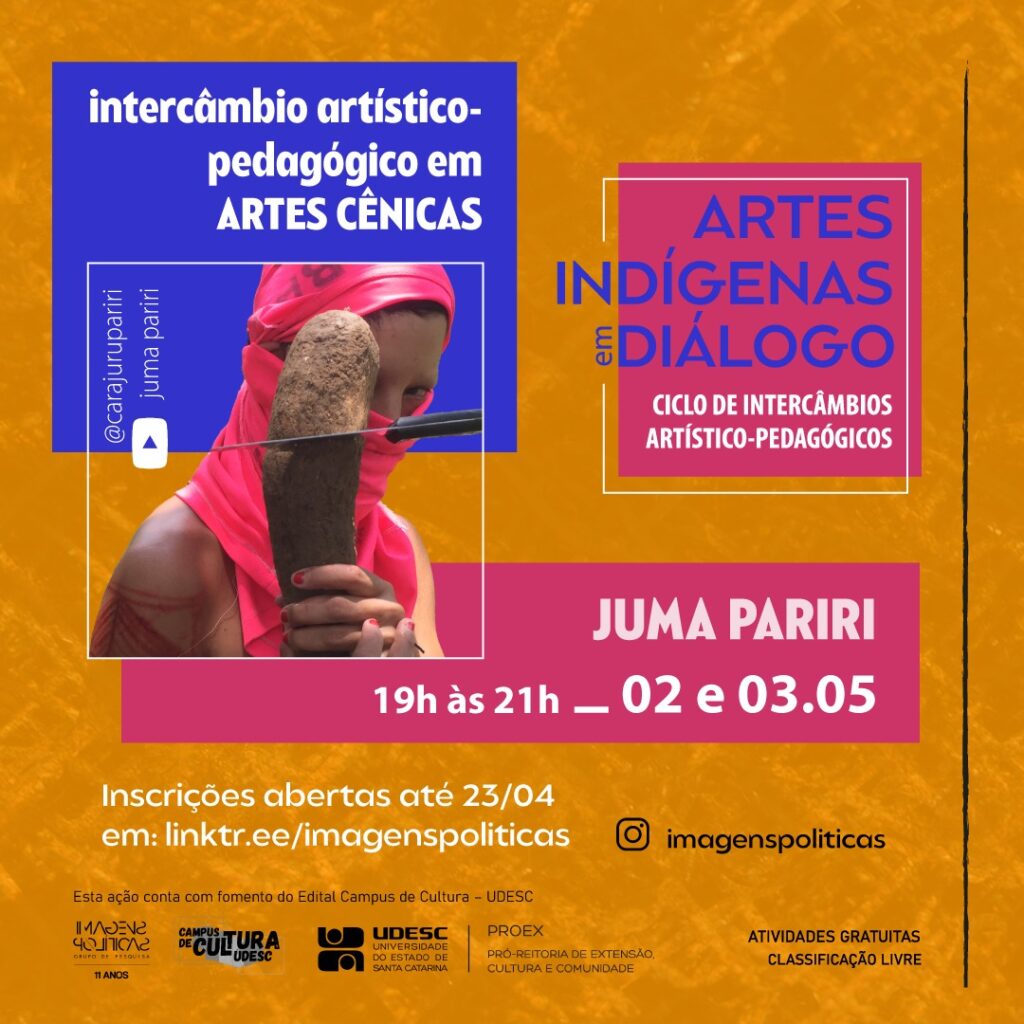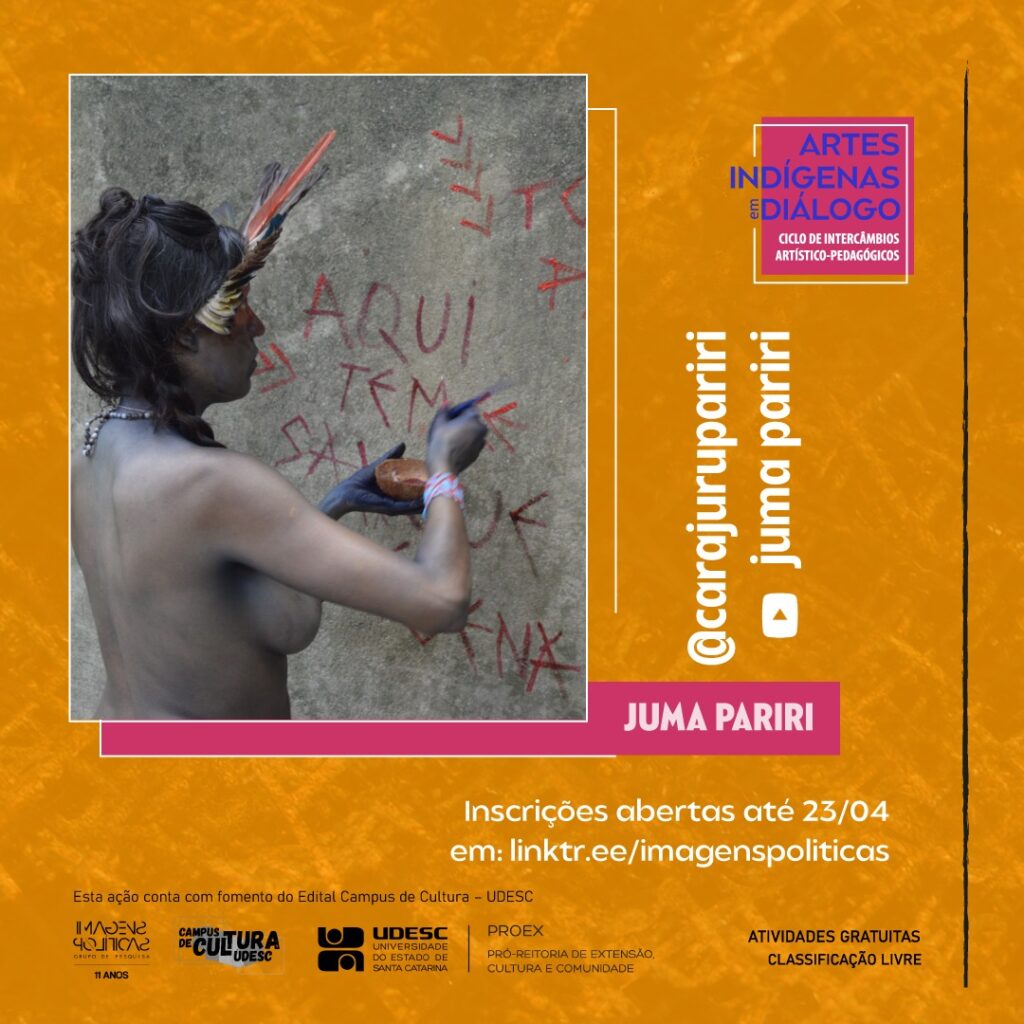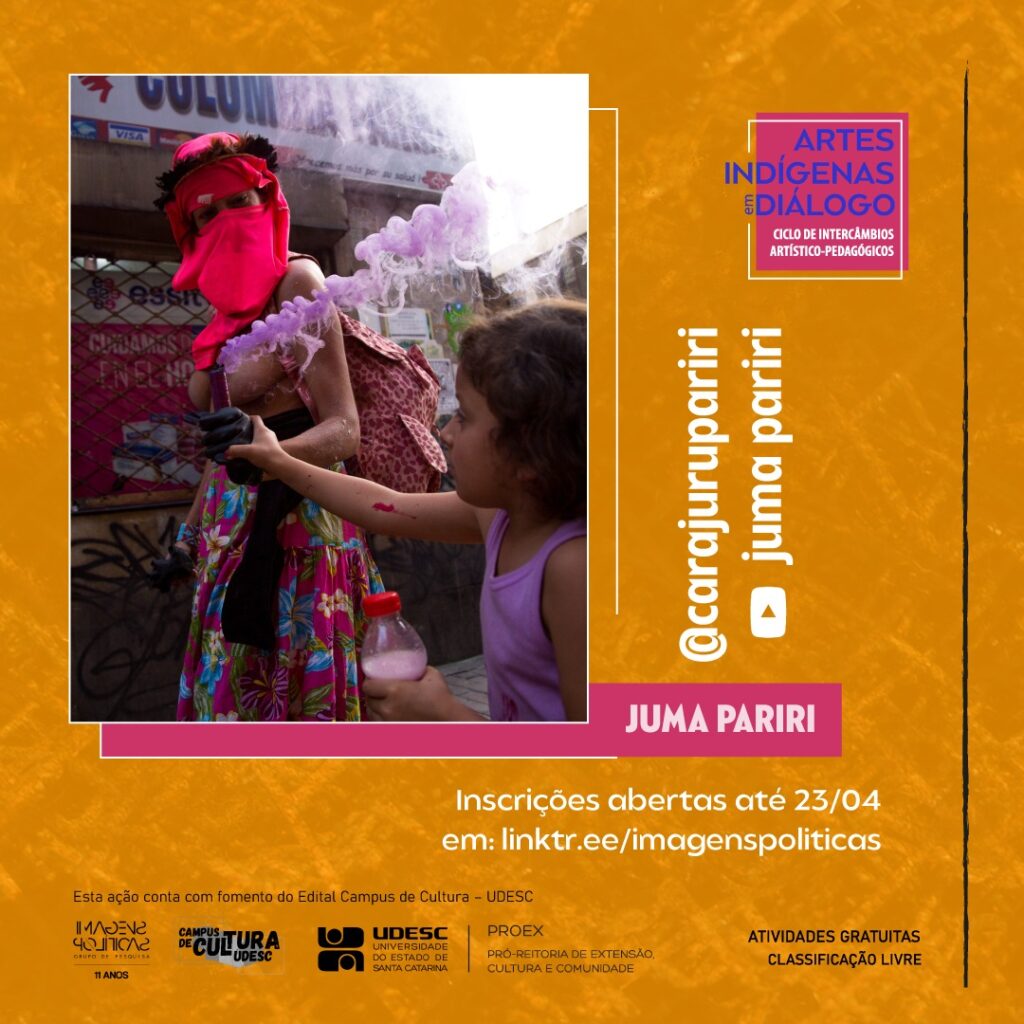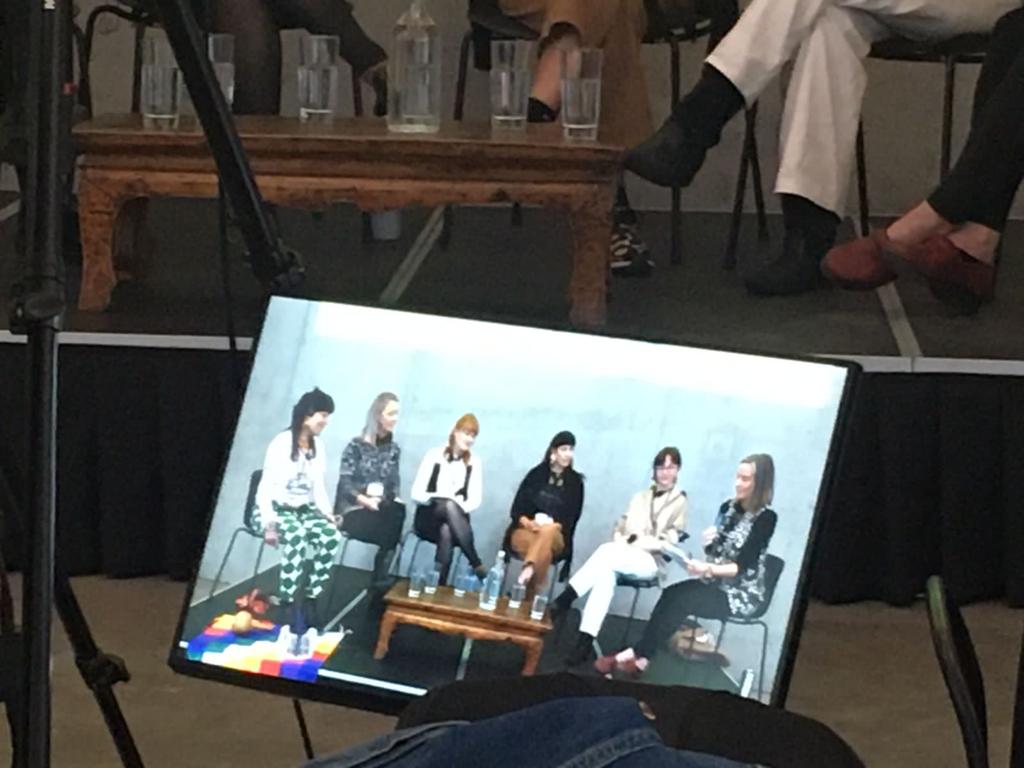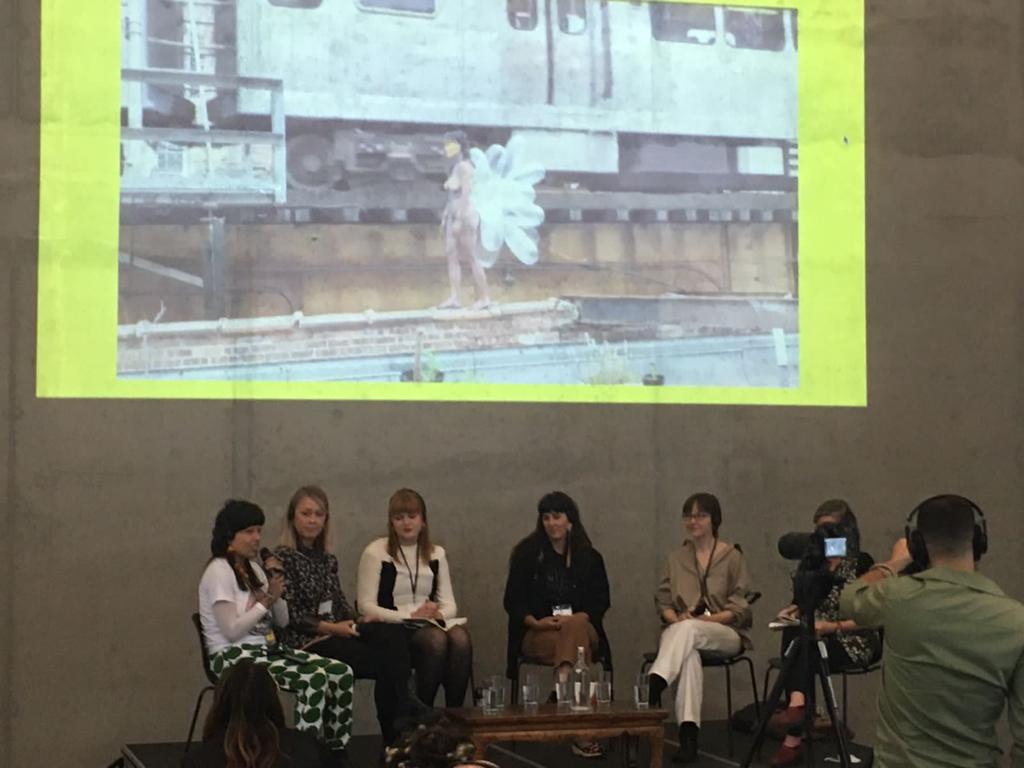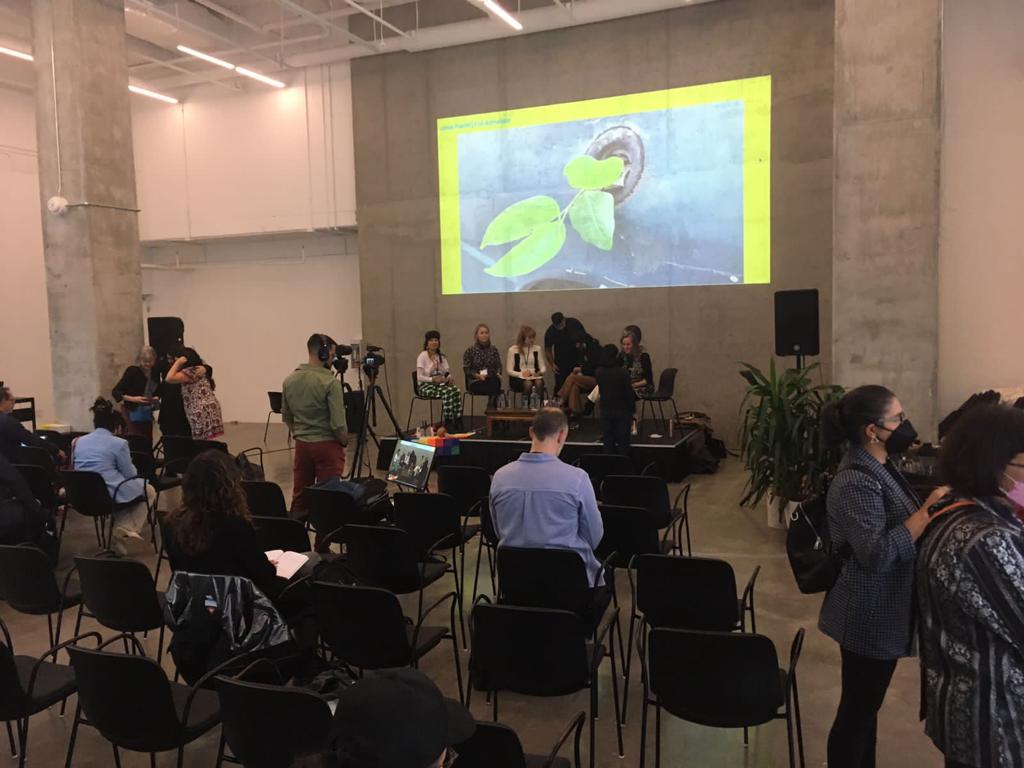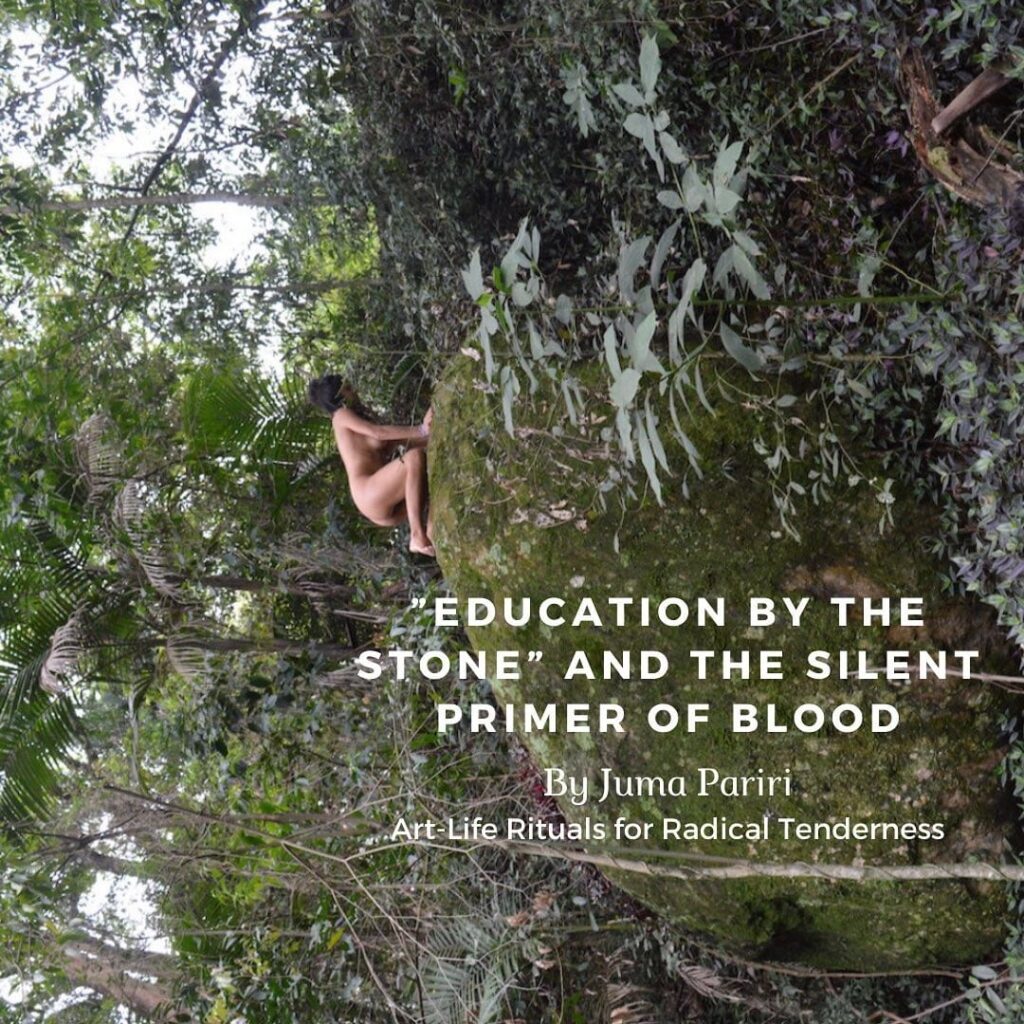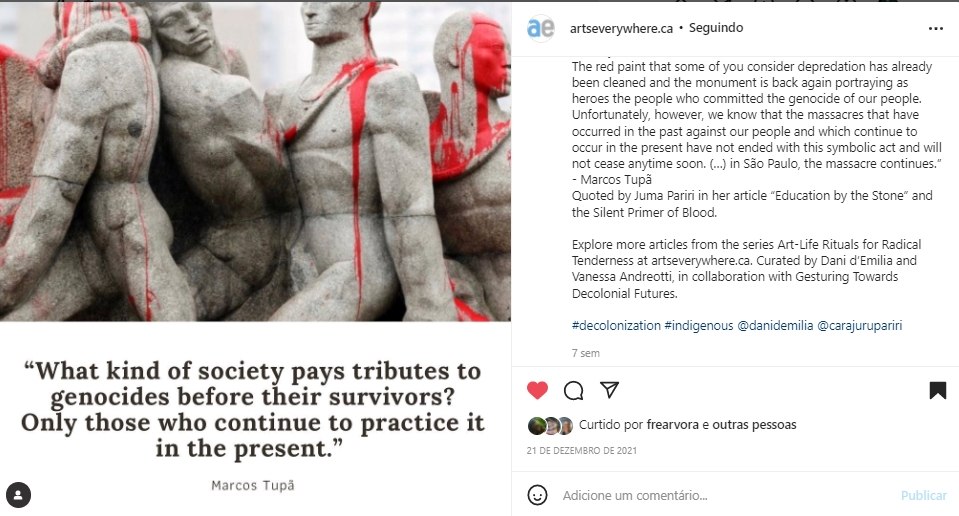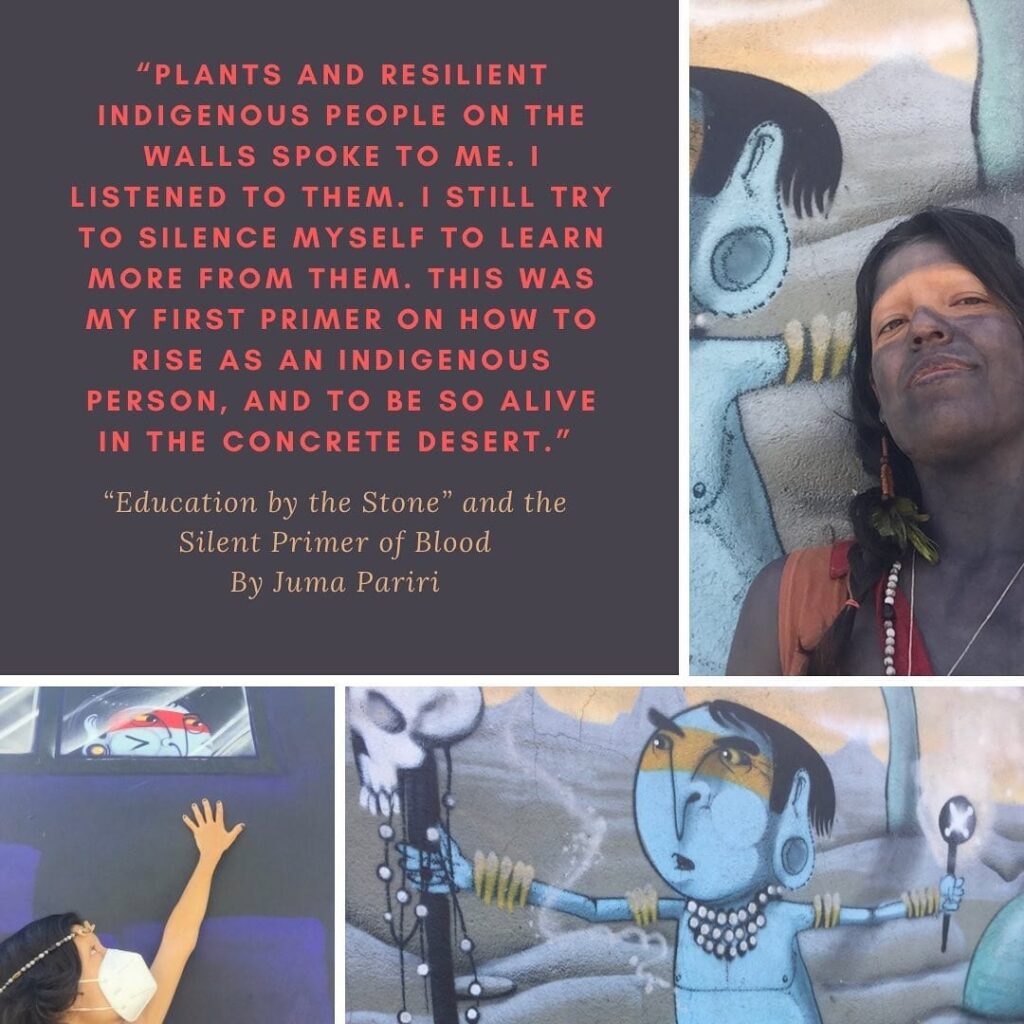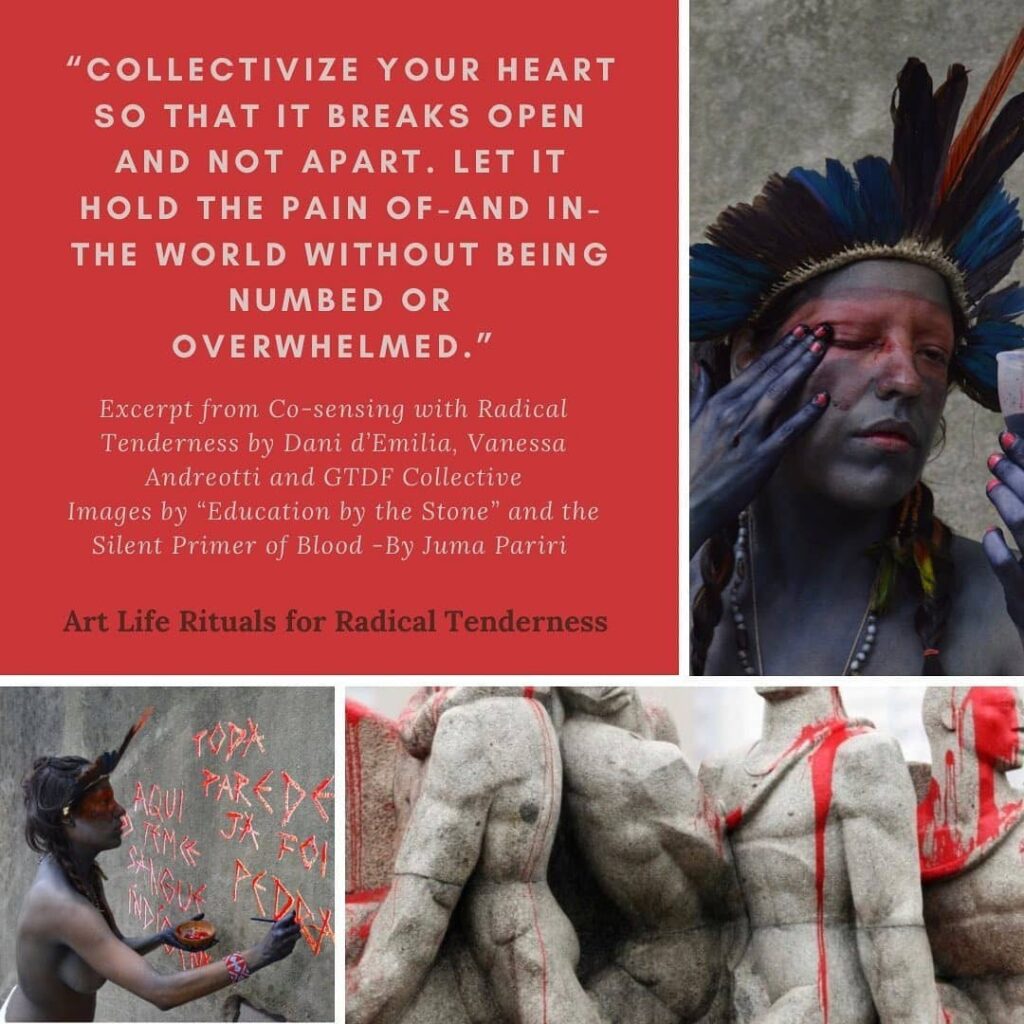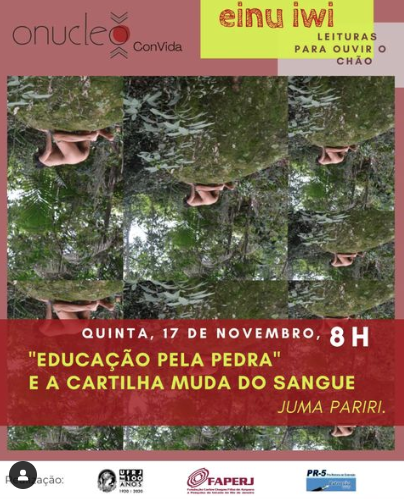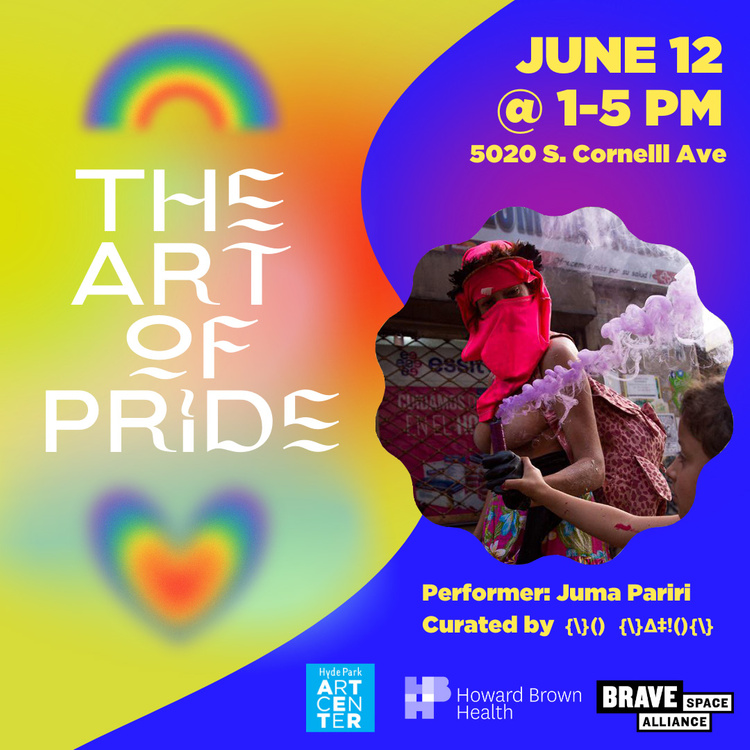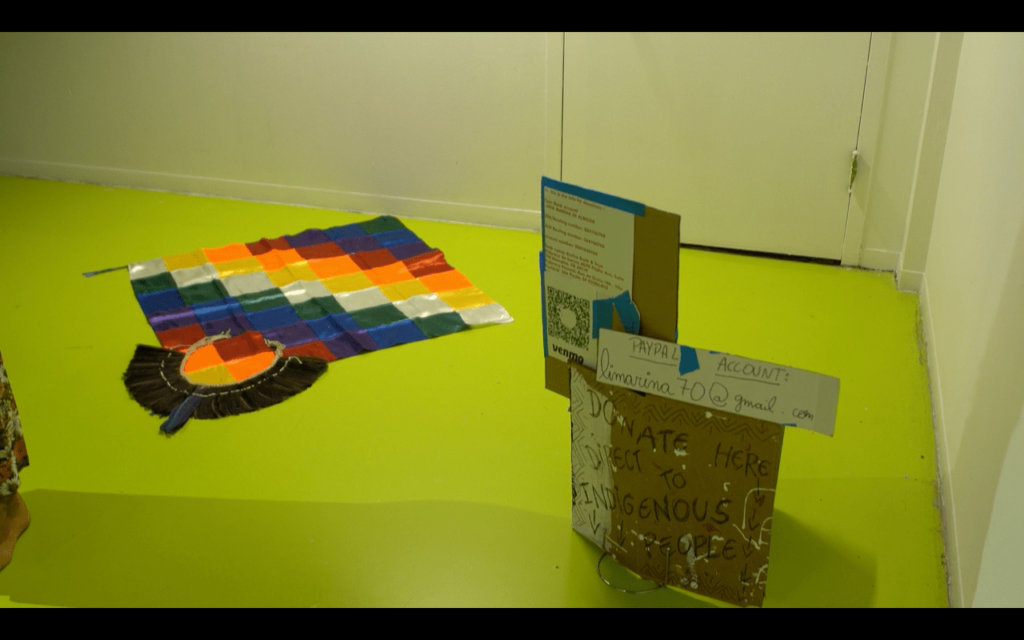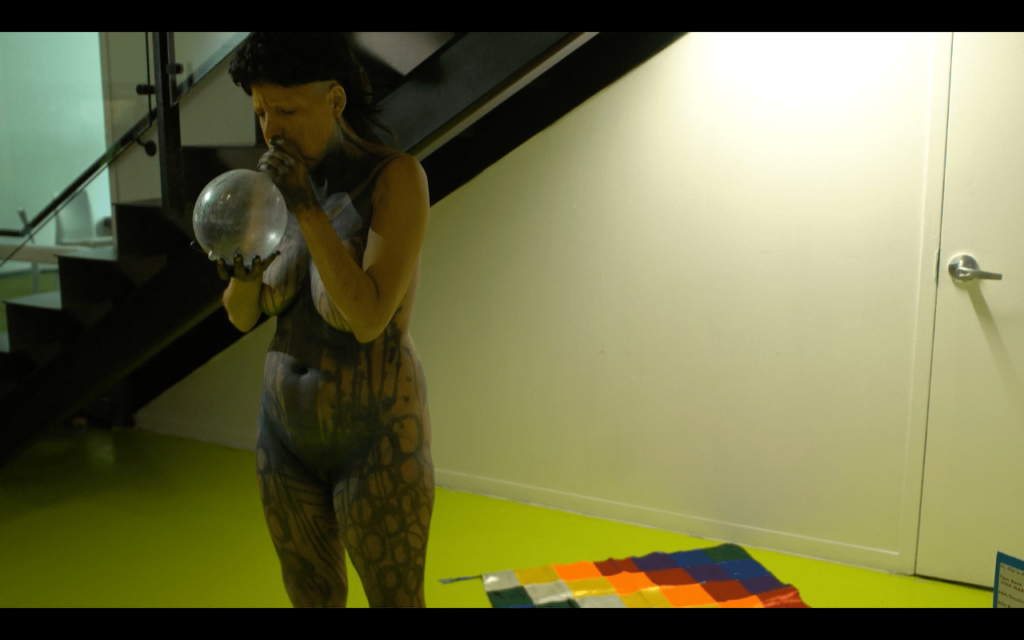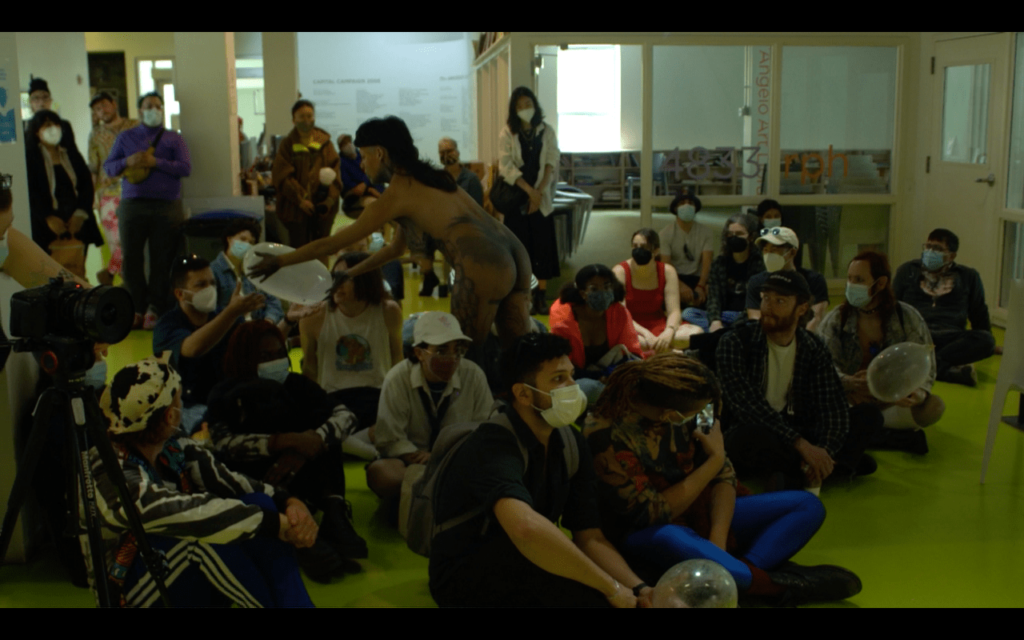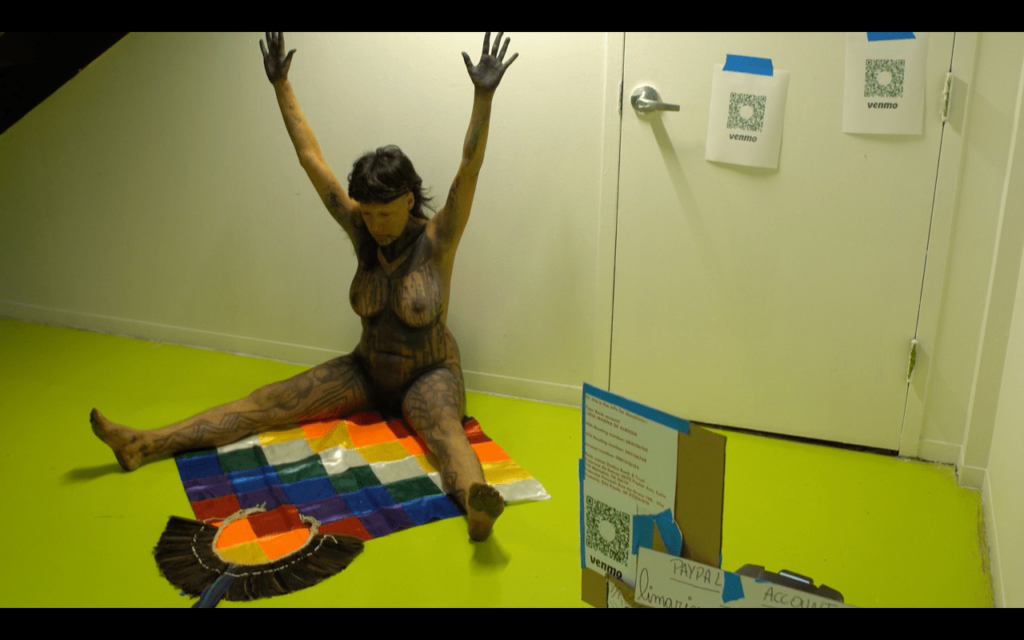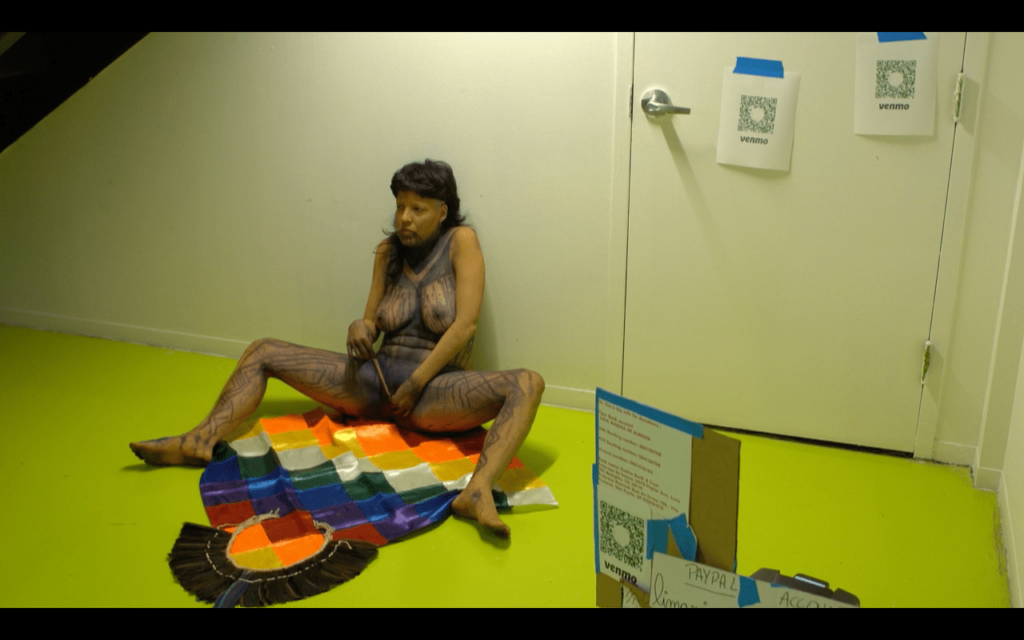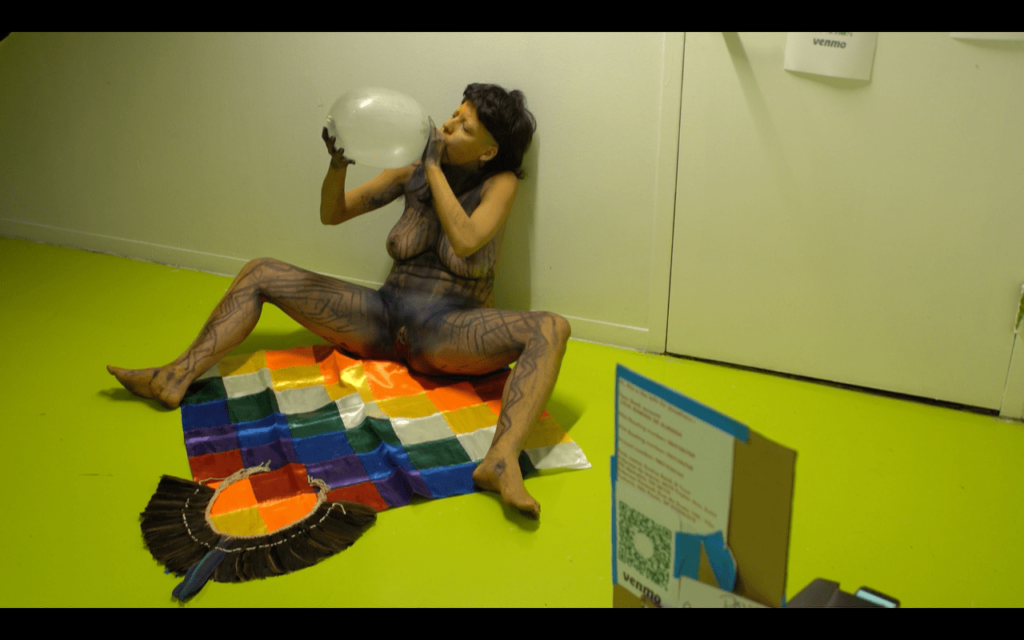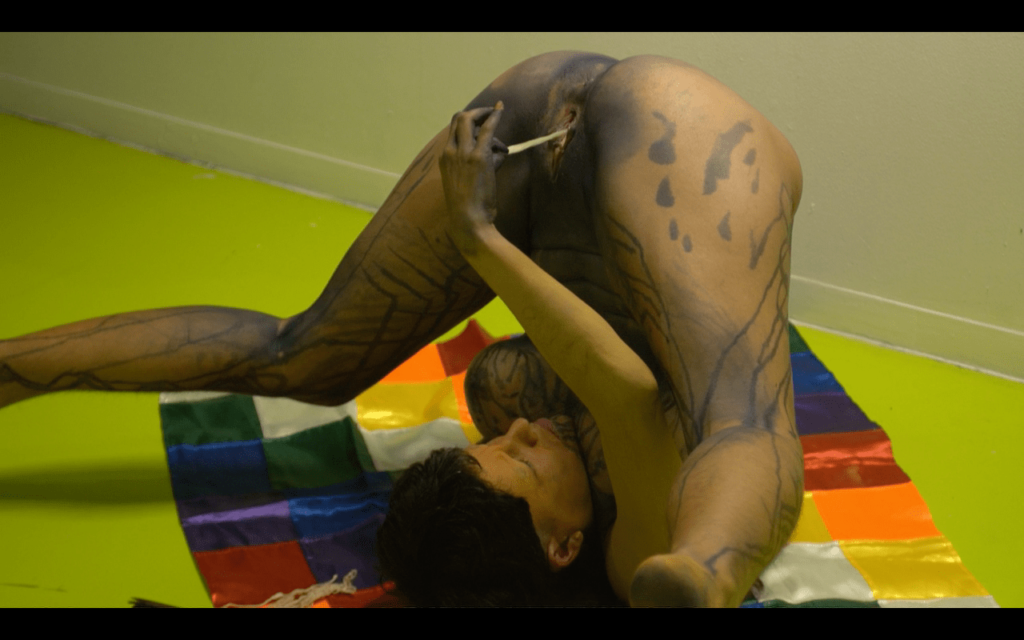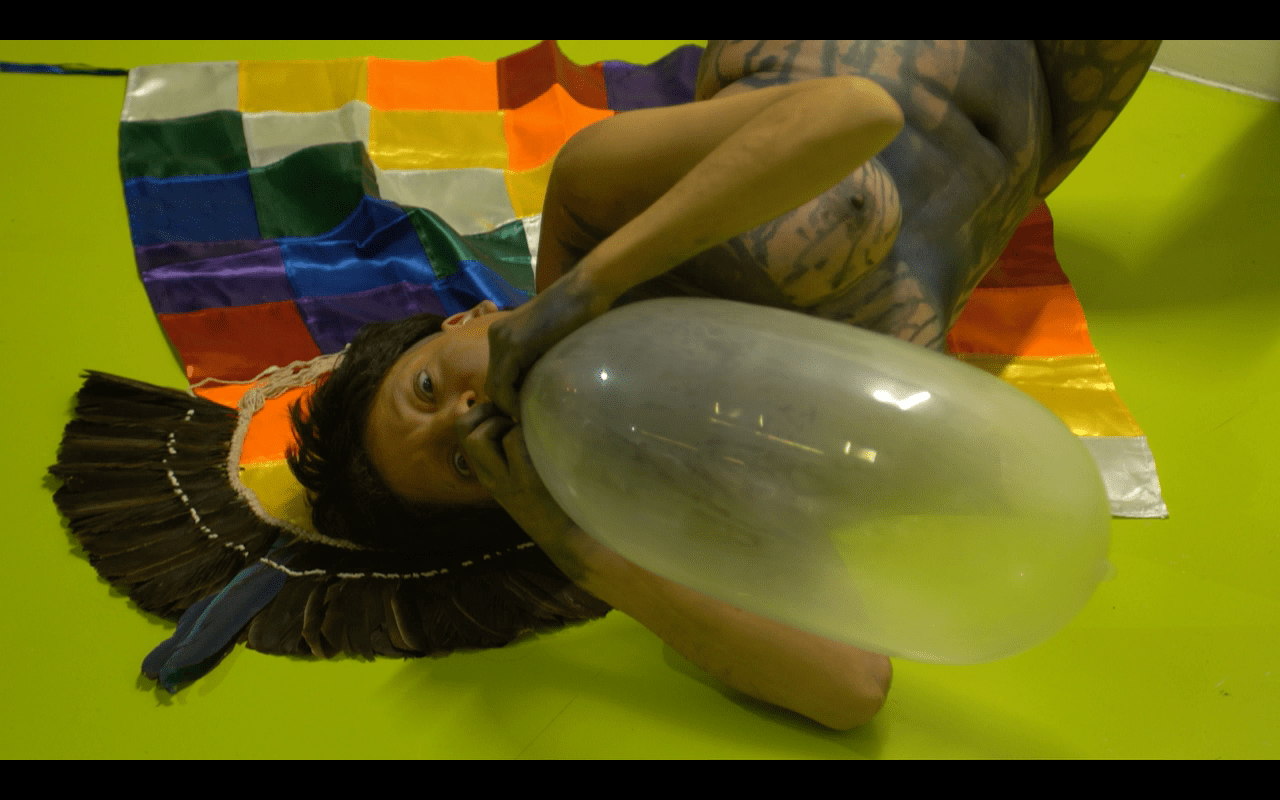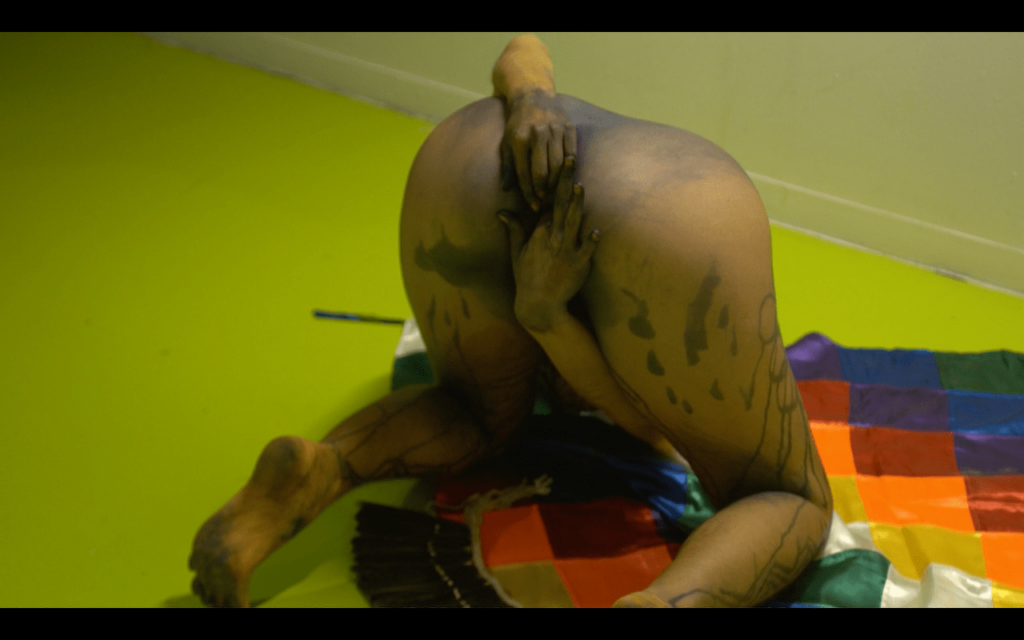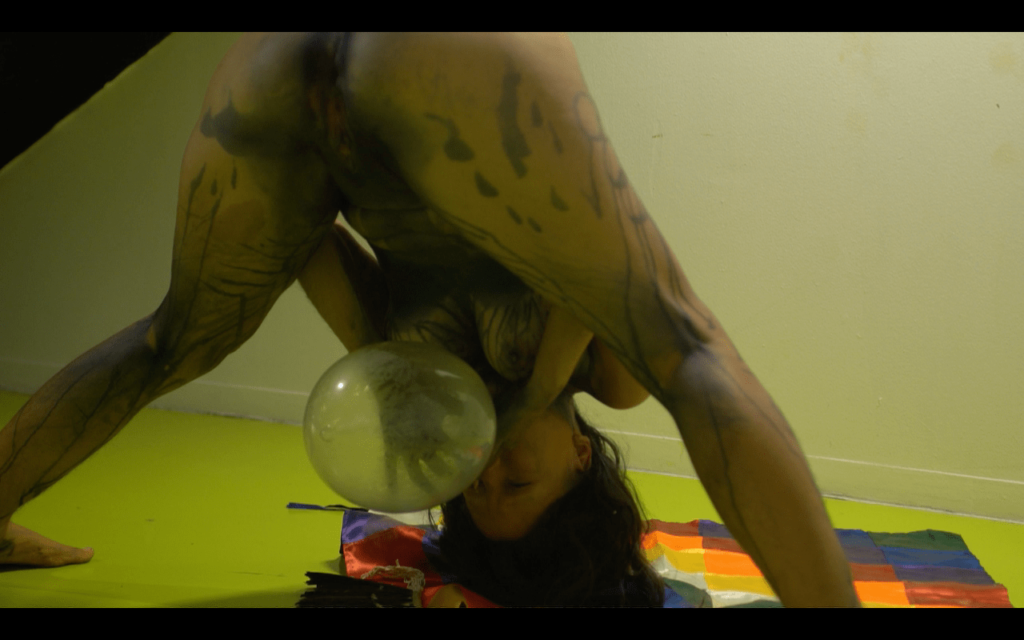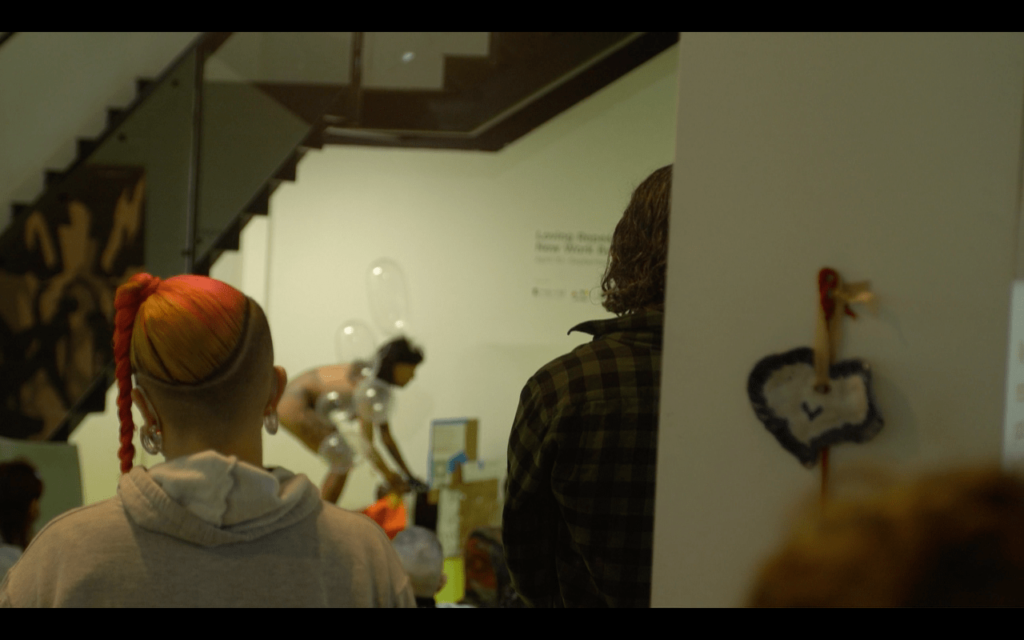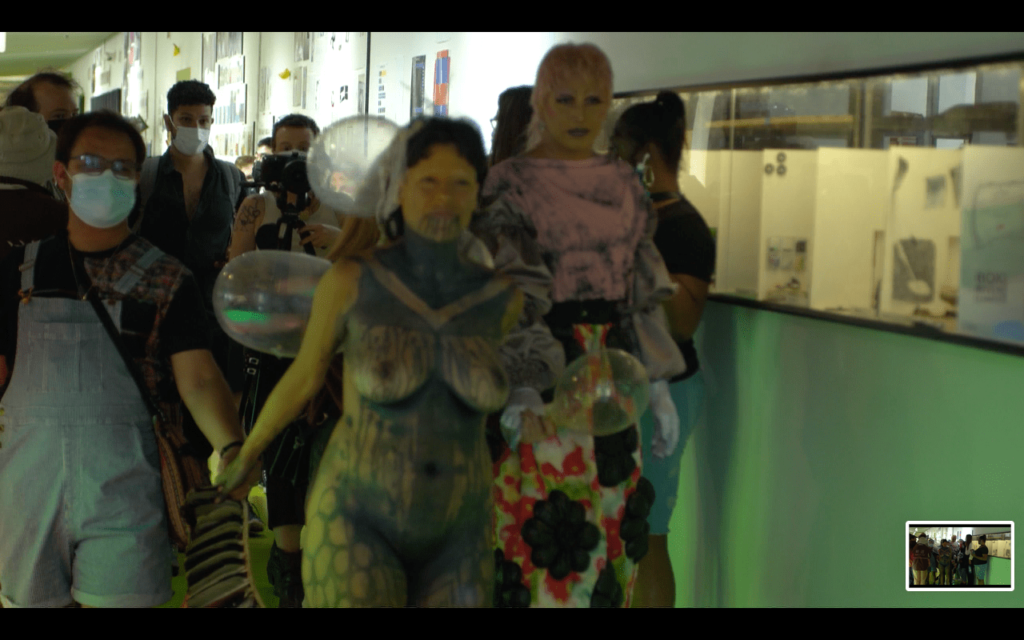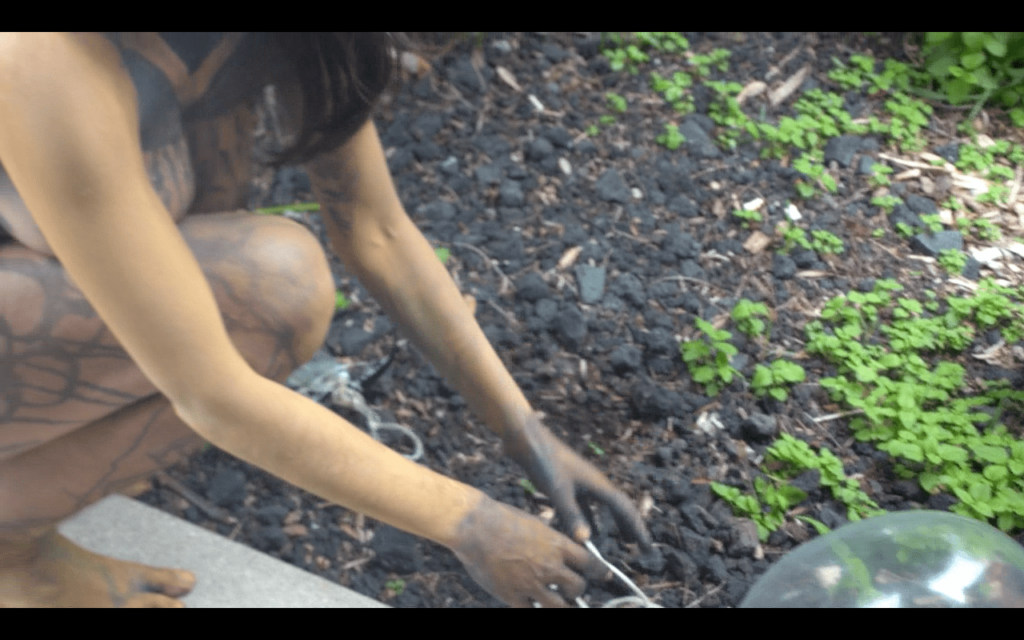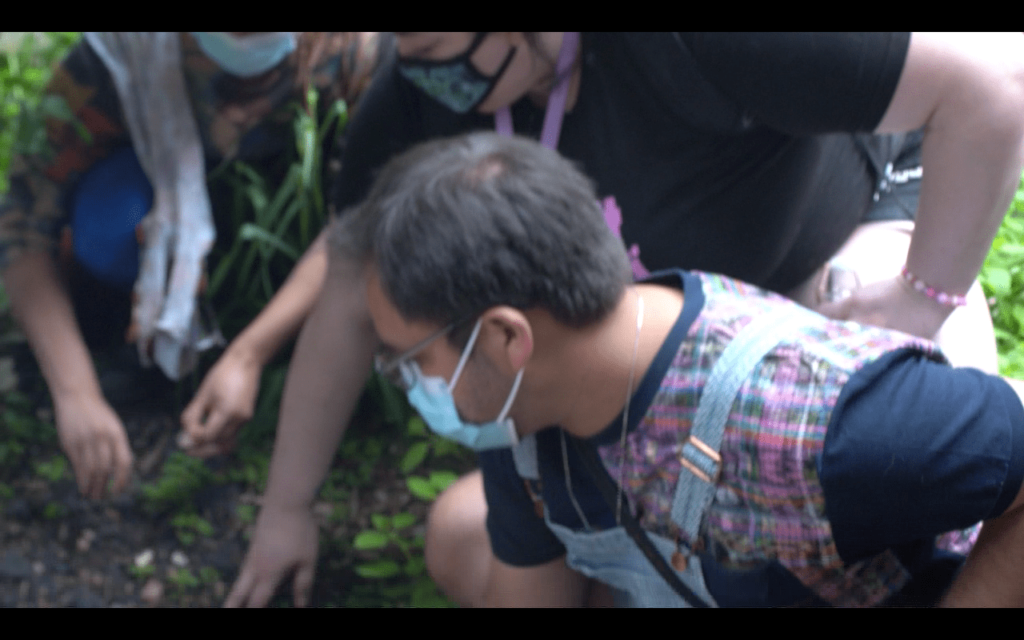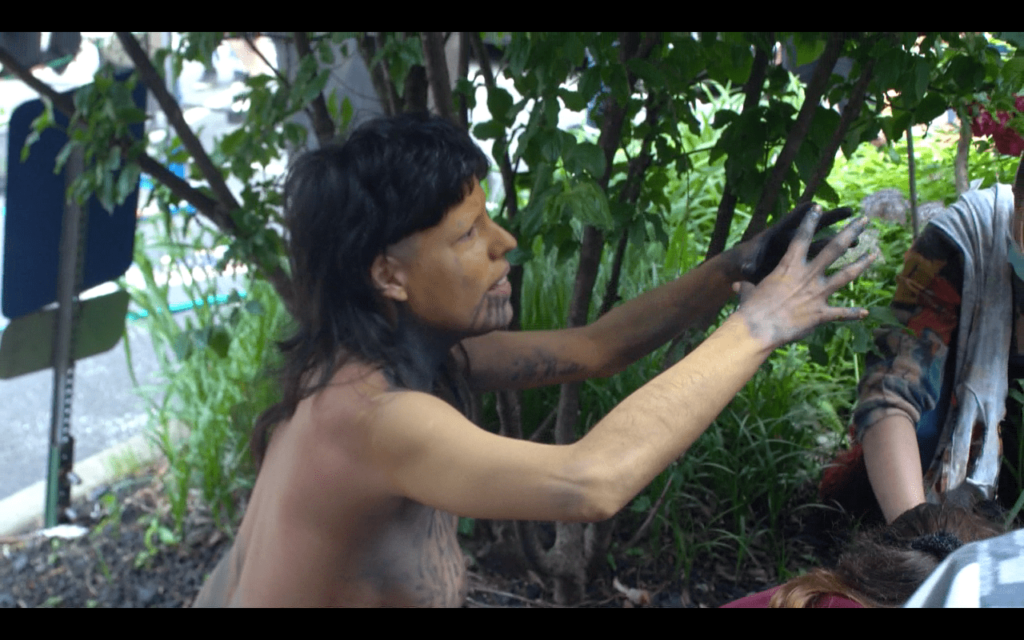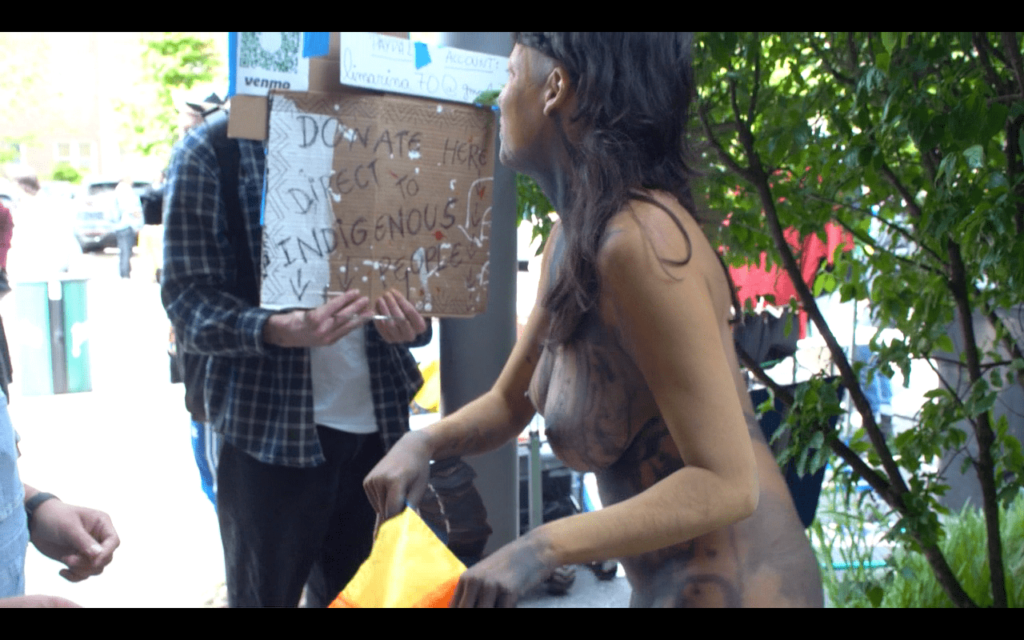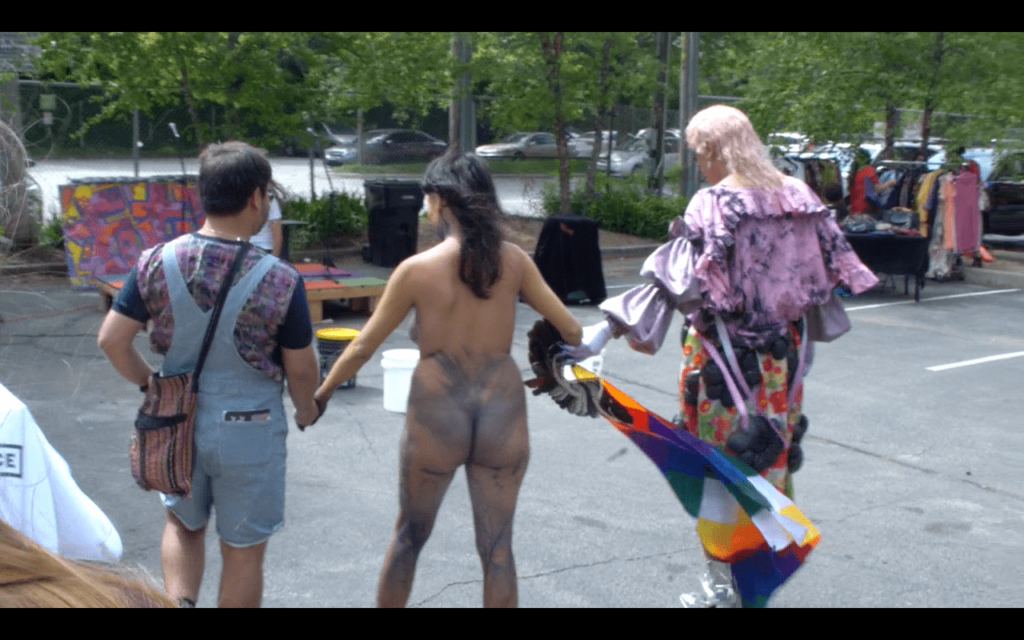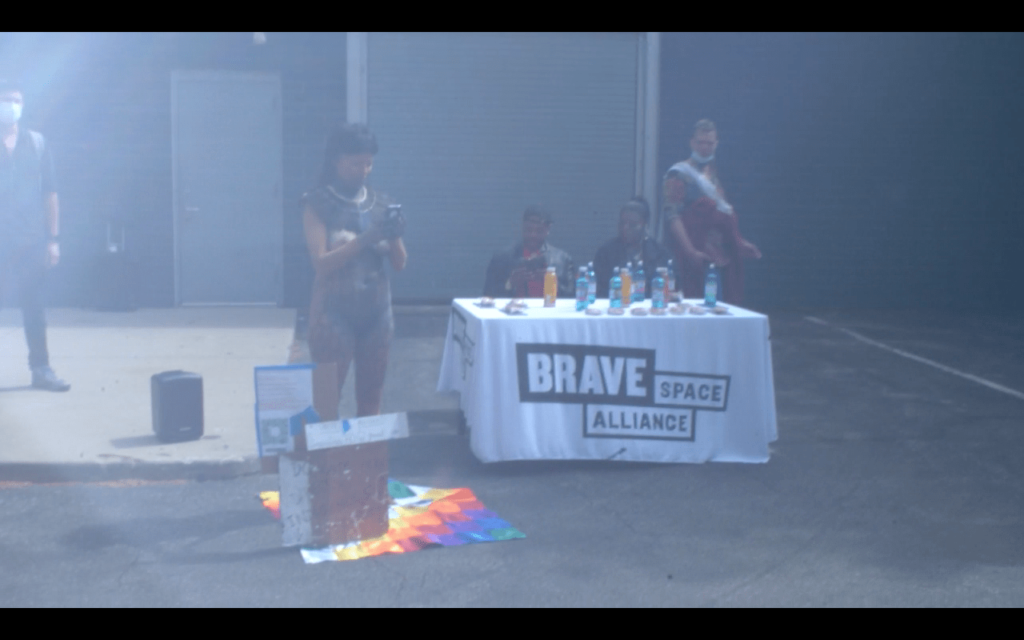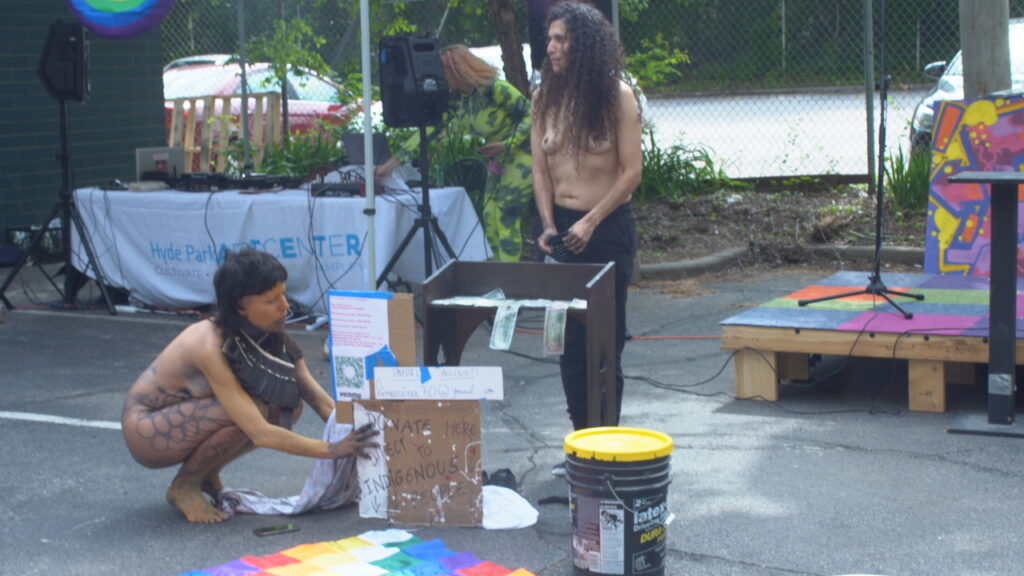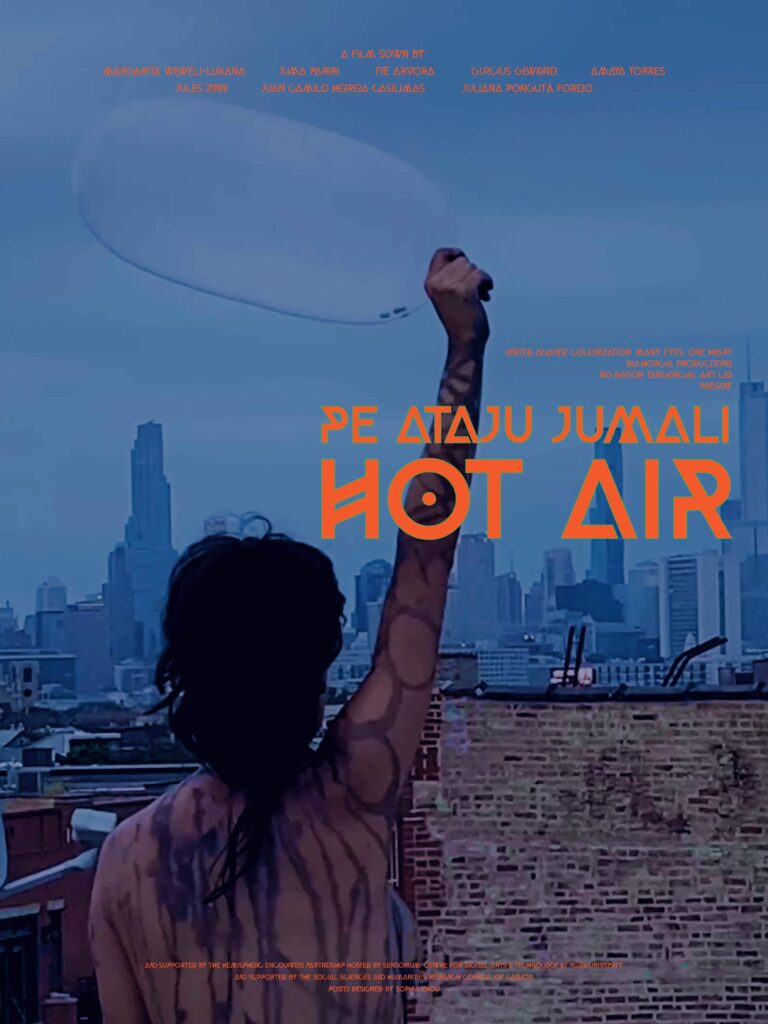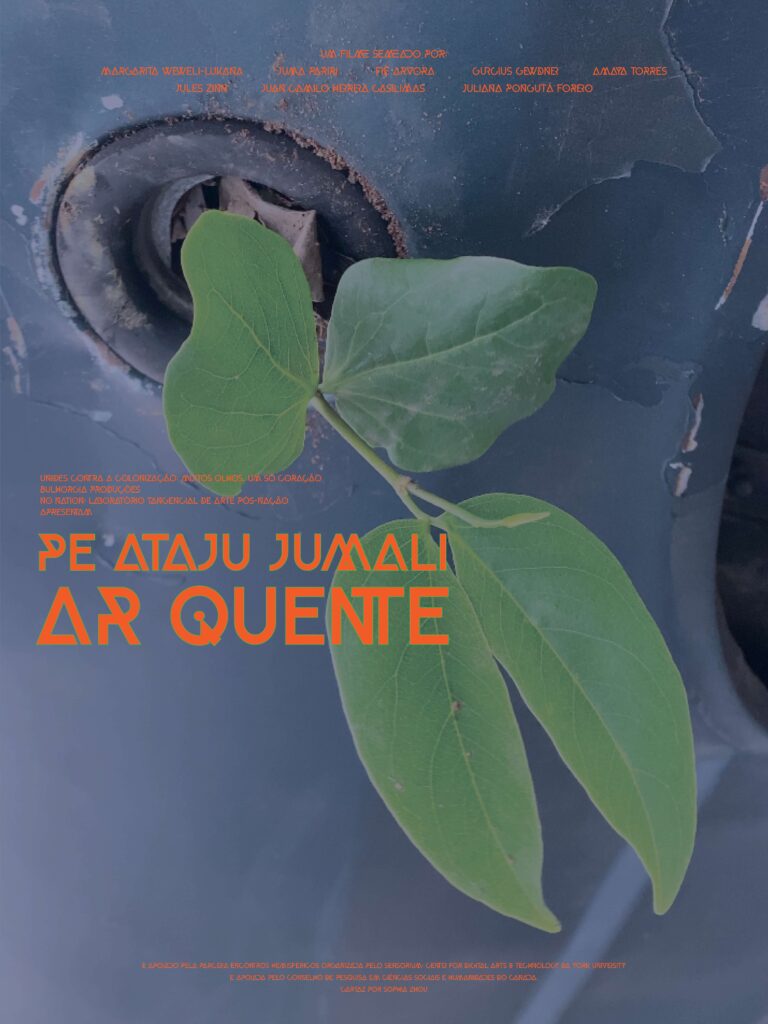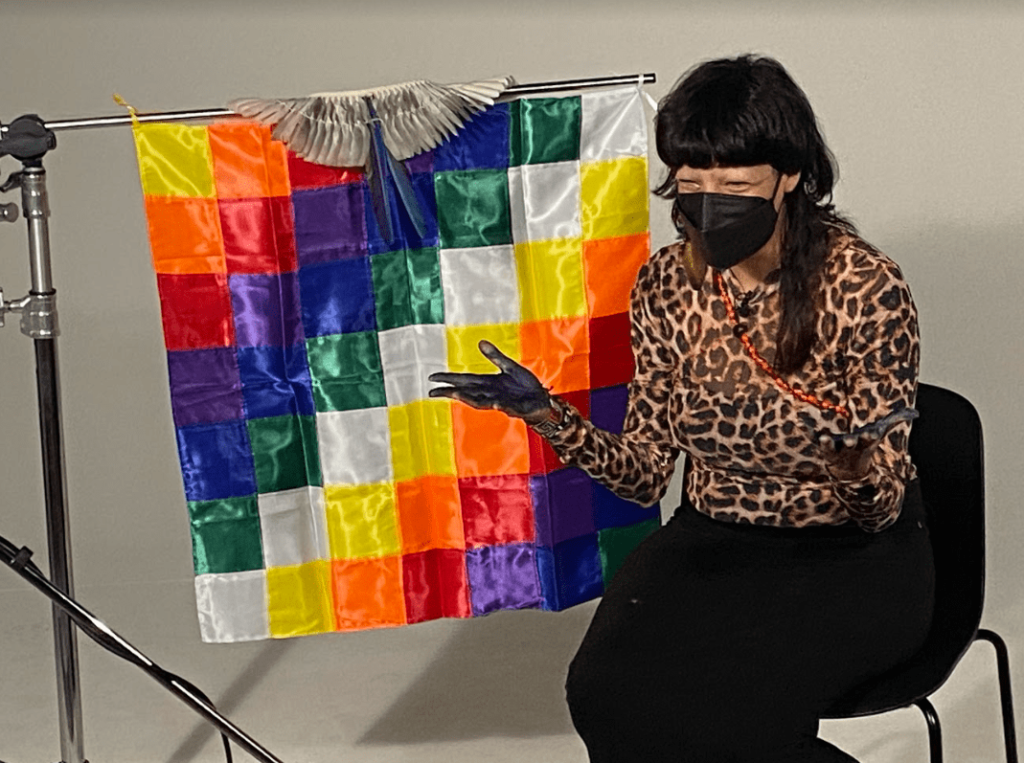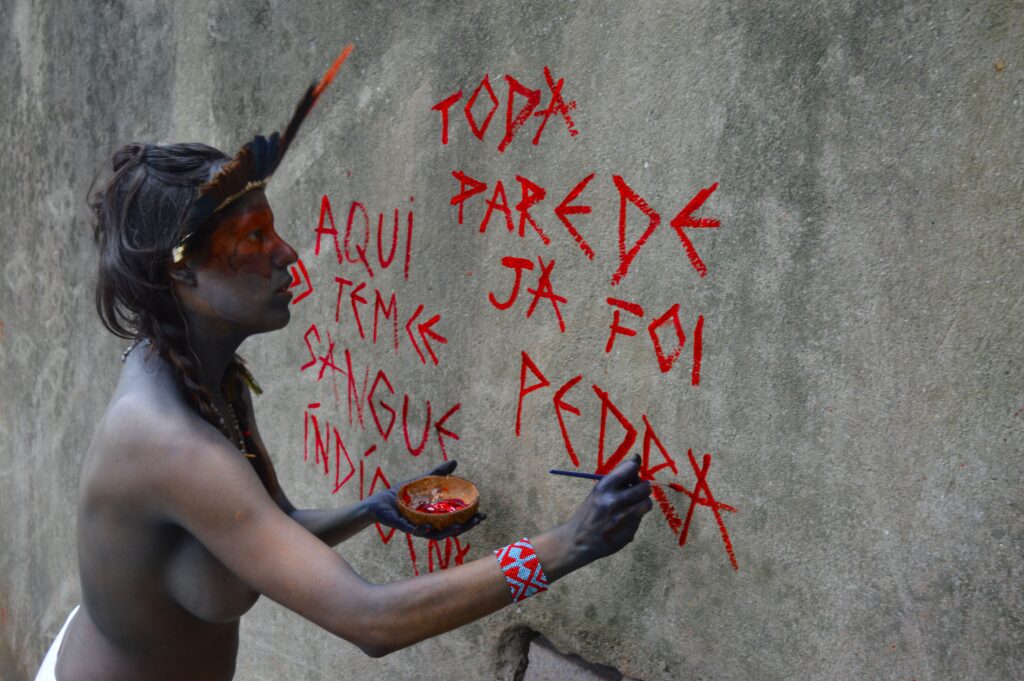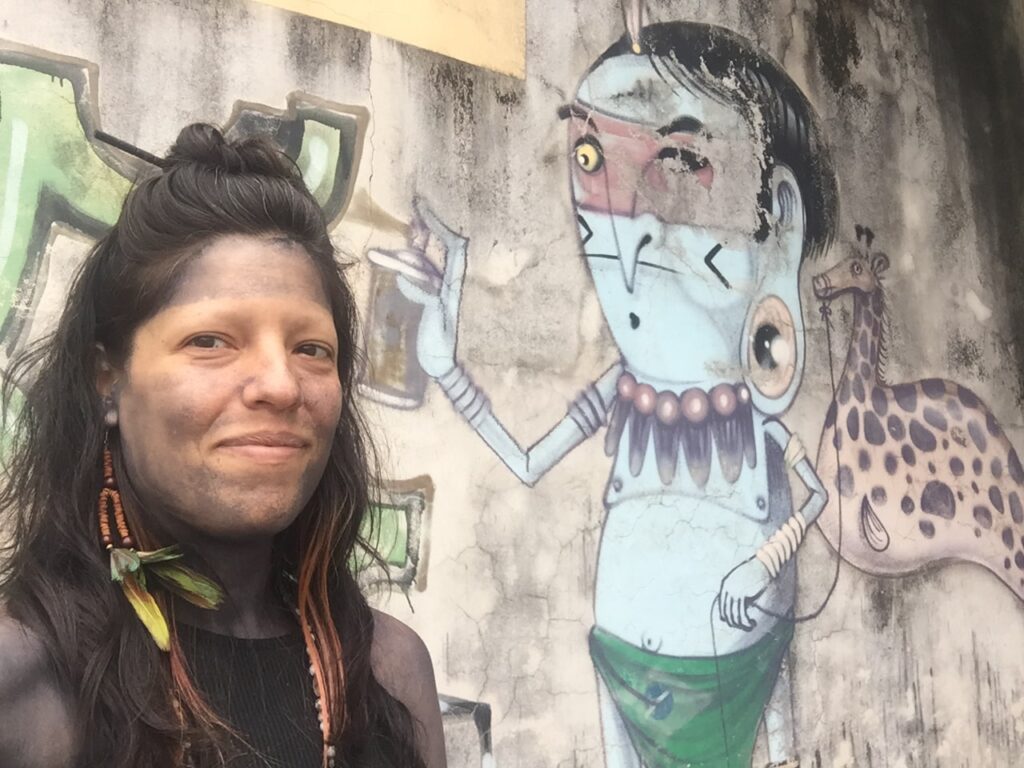In 2008, it became compulsory to teach indigenous and Afro-Brazilian cultures in basic education, but not in higher education, creating a gap in teacher training regarding this knowledge and practices, reinforced by the institutional racism still hegemonically in force. MIACAY – II Mostra Indígena de Artes da Cena in Abya Yala: dançar o impossível para mover mundos (II Indigenous Exhibition of Performing Arts in Abya Yala: dancing the impossible to move worlds), lovingly organized for artist-teachers and anyone with an interest in the tensions and/or imbrications of what are conventionally called “Indigenous cultures” and “body arts” from an anti-colonial/capitalist perspective, was created to heal these colonial pains in the field of performing arts.
The entire program was made available free of charge and with a free rating between March 28 and April 11, 2022, on the “Grupo Imagens Políticas” YouTube channel.
COMPLETE PROGRAM
PROGRAM 1
⇨ Decathecizing to decolonize: clues for reforesting the imaginary of Geni Nuñez (SC)
Colonization is not over; its effects are still felt on earth, in human and non-human beings, in the way we think, feel, and are in the world. To make amends, we first need to acknowledge, and in this meeting, we will discuss some of the impacts of colonization of thought, deeply inspired by Christian morality, on (dis)involvement with the body, sexuality, and other relationships. By recognizing the system of monocultures (Christian monotheism, monogamy, and monosexism) we will reflect on ways of reforesting our body-territory).
About Geni Nuñez
Geni Núñez is an indigenous activist, psychologist, Master in Social Psychology, and PhD candidate in the Interdisciplinary Postgraduate Program in Human Sciences (UFSC). She is a member of the Brazilian Articulation of Indigenous Psychologists (ABIPSI) and co-assistant of the Guarani Yvyrupa Commission. She researches whiteness, ethnocide, non-monogamy, and other decolonizations.
⇨ La utopía de la mariposa by Lukas Avendaño and Miguel J. Crespo (31′, MX, 2019
Lukas Avedaño is perhaps the most important artist in the Muxe community, the third gender of the Zapotecs. Poetry, dance, and anthropology are the tools he uses to express himself. Her brother Bruno disappeared mysteriously on May 10, 2018. Finding him among the 70,000 missing in Mexico is, for Lukas, a utopia.
About Lukas Avedaño
Lukas Avendaño is a muxe performance artist and Mexican anthropologist. Her work is characterized by the exploration of sexual, ethnic and gender identity.
PROGRAM 2
⇨ Get up and Fight by Naine Terena (10’, MT, 2021)
Script written by Naine Terena about the fight against PEC 215, from the perspective of the actions of the encantados. The images were provided by people who were in Brasilia between December 15 and 17, 2014 (including Naine herself), thus bringing points of view to the facts. In this video, Naine is a character at the same time as she leads the viewer through the narrative.
About Naine Terena
She has a PhD degree in education, a master’s degree in arts, and a degree in radio broadcasting. She is an independent curator, a lecturer in the specialization in Contemporary Cultural Management at the Itaú Cultural Institute, and a collaborating lecturer in the Postgraduate Programme in Teaching in an Indigenous Context at UNEMAT. She works at “Oráculo comunicação, educação e cultura,” where she conducts research, teaches free courses, communicates, and conducts projects.
⇨ Ramo de Rio by Lilly Baniwa and Naiara Alice Bertoli (41′, AM, 2021) Ramo de Rio shares the processes, testimonies, and developments of the Identity Performativities Workshop, held in 2021 in the indigenous community of Itacoatiara-Mirim and the city center of São Gabriel da Cachoeira/AM. It was permeated by speeches from indigenous artists who took part through formative videos which sparked inspiration, reflection, and the (re)knowledge of paths already traveled in art and the recognition of indigenous identity.
About Lilly Baniwa
Performer and indigenous academic in Performing Arts at the State University of Campinas (Unicamp). Her latest projects include the show WHAA Nós, entre ela e eu (2022), the video performance manifesto Lithipokoroda (2021), and the short films Ooni (2021) and Ramo de Rio (2021), both the result of the Identity Performativities Workshop, developed in the municipality of São Gabriel da Cachoeira/AM.
About Naiara Alice Bertoli
Producer, actress, storyteller, and art educator. She has produced short documentaries, podcasts, workshops, theatre productions, and projects with indigenous peoples, especially the Baniwa of the northwestern Amazon, and other production and curatorial projects linked to affirmative politics and ethnic-racial issues.
PROGRAM 3
⇨ Uru’Ku by Bárbara Matias (10′, CE, 2021)
Placing the body in the corral as an act of performative subversion against the project of ethnocide and memoricide. A corral is an artisanal structure made of dry sticks from the bush, built by the natives at the behest of their Colonel-friend to trap the children of the land as
cowboys, to imprison the cattle that arrive in this territory. To the extent that Colonelism tames us, it massacres our ancestry.
About Bárbara Matias
Bárbara Matias is indigenous to the Kariri people. An artist with urgency, she is a screenwriter, actress, and film producer who works with the Arruaça Escoamento Collective, the Flecha Lançada Arte Collective, and the Tamain Collective. Bárbara is also an indigenous youth leader and activist in Aldeia Marrecas and Retomada Kariri Ceará. She is also currently a screenplay student at the Porto Iracema School of the Arts and a Ph.D. candidate in Performing Arts at UFMG. She is the author of the book “Pensando a Pedagogia do Teatro da Sala de ensaio para a Escola pública” (Thinking about Theater Pedagogy from the Rehearsal Room to the Public School) (Ed. APPRIS, 2020).
⇨ Ñamiajapú dajãrãsa – Mañana volvemos by Corporación Tapioca (45′, CO, 2018)
Ñamiajapú Dajãrãsa is a documentary dance project that addresses the phenomenon of indigenous youth migration to Vaupés, in the Colombian Amazon. Oral narration, video, sound, and the body in movement make up this living archive, whose creation becomes a pretext for meeting and building bridges between artists from Mitú and Bogotá, indigenous and non-indigenous people, alterities, and territories.
About Corporación Tapioca
The collective works with the cultural values of the Colombian Orinocoamazonía through different processes of artistic mediation with communities. In its 12 years of existence, Tapioca has developed processes that link the performing arts, visual arts, music, and literature with contemporary indigenous territories, identities, and expressions.
PROGRAM 4
⇨ Reflorestamentes by Kerexú Yxapyry (SC)
Kerexú Yxapyry tells us about the relationship between the sacred, the body, the land, food, and cultivation from the Guarani perspective, and invites us to reforest our actions-thoughts by cultivating hope and collective struggle.
About Kerexpu Yxapyry
Kerexpu Yxapyry is one of the leaders of the Morro dos Cavalos Indigenous Land, executive
coordinator of the Articulation of Indigenous Peoples of Brazil (APIB) and the Guarani-Yvyrupá Commission.
⇨ Arreia by Íris and Iara Campos (37′, PE, 2021)
Arreia is a dance creation that premiered online. The duo of artists Íris Campos and Iara
Campos is directed by Paulinho 7 Flexas and brings to the stage the imaginary representations that are part of Caboclinho from the playing body of Caboclinho 7 Flexas from Recife. The storyline builds a relationship between the universe of dreams and the creation of the Association, constructing a narrative that honours the Indigenous ancestry of Íris, Iara, and Paulinho, bringing to light the resistance of the Indigenous peoples and inserting new concepts of preservation of the manifestation.
About Íris Campos
Art educator, dancer, actress, and performer. Graduated in performing arts from UFPE. Member and performer with Caboclinho 7 Flexas do Recife since 2004. Member of the Totem Group. Co-creator, dancer, and actress with Cia Três na Lua. She teaches dance and theater in private and public schools in Recife and the metropolitan region.
About Iara Campos
Dance and theatre artist, art educator, and cultural producer. Graduated in performing arts from UFPE. She has been a member of Caboclinho 7 Flexas do Recife since 2004. An independent artist-creator, she has developed a career in her own creations and various collectives in Recife and the Metropolitan Region.
CREDITS
Words-actions that reforest by: Geni Nuñez and Kerexú Yxapyry Artists: Bárbara Matias, Corporación Tapioca, Íris Campos, Iara Campos, Lilly Baniwa, Lukas Avedaño, Naiara Alice and Naine Terena.
Presentation and mediation: Juma Pariri
Organization: Political Images Group (CEART/UDESC)
Project coordinator: Fátima Costa de Lima
Conception, curation and research: Juma Pariri and Paloma Bianchi
Consulting: Paloma Bianchi and Emanuele Weber Mattiello
Executive producer: Juma Pariri and Paloma Bianchi
Production Assistance: Emanuele Weber Mattiello, Escaley Alves (project research assistant) and Yasmin Furtado (Political Images Research Assistant)
Visual Identity and Graphic Design: Ricardo Goulart
Video capture: Paloma Bianchi and Juma Pariri
Video editing and opening vignette: Hedra Rockenbach
Translation and subtitling: Frê Almeida
The programs’ opening and closing vignettes were produced by Hedra Rockenbach from audio recorded by the o_ultimo profile, made available for free on the free sounds platform.
Images for graphic material composition: Demonstrators topple the statue of Christopher Columbus in Barranquilla, Colombia by Mery Granados (Jun. 28, 21/Reuters); Education through stone by Frê Almeida (2021)
